Week 142: Buongiorno Italia!
We leave Pula and travel to Rovinj where we meet Seamus and Sandy, help Jasna get unstuck then off to Umag where we depart Croatia for Trieste, Italy!
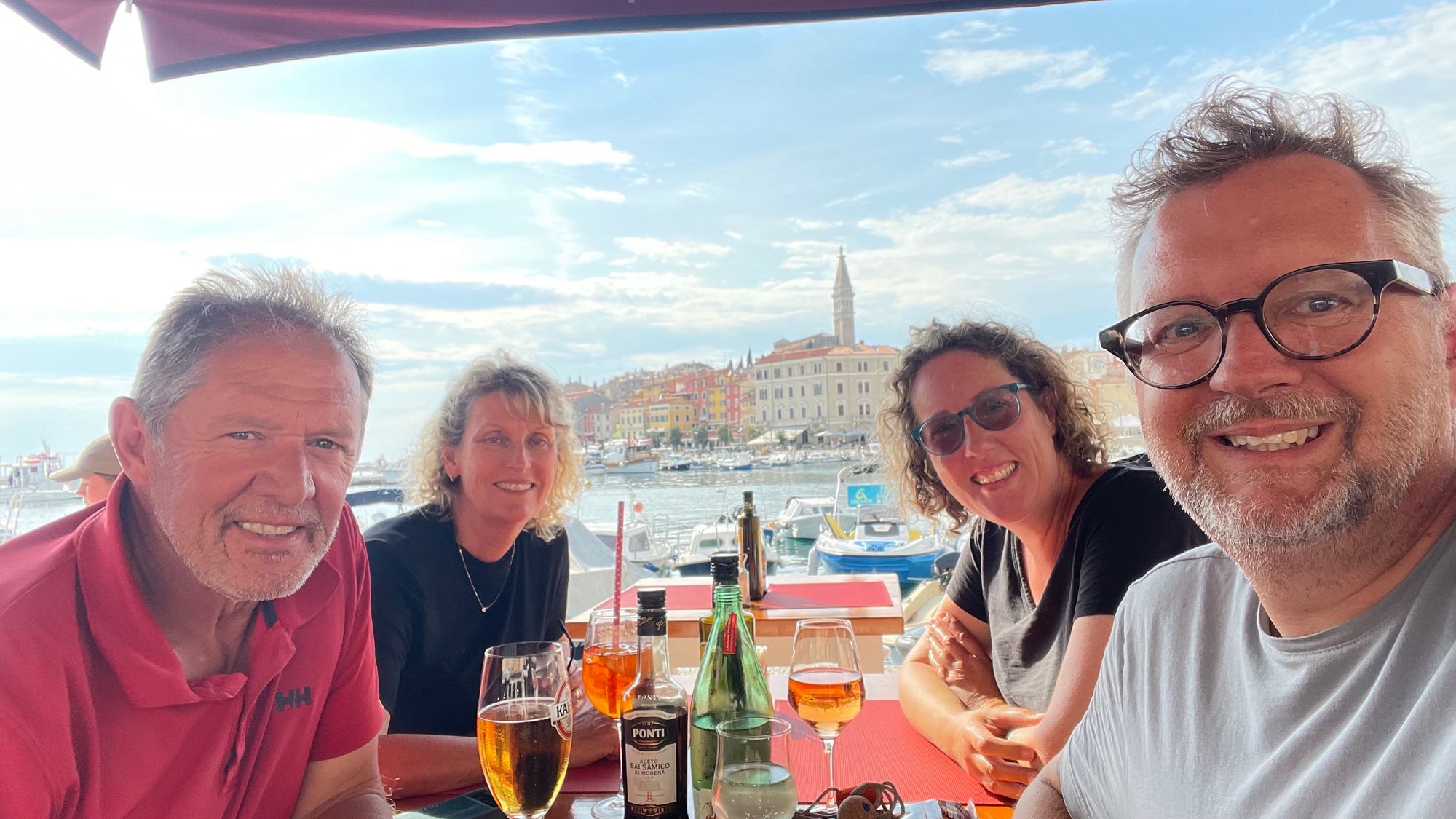
As I sit here writing, I'm looking out the windows of Matilda, surrounded by a very grey, overcast sky. There's occasional heavy showers. In the distance through the cloud there's glimpses of snow capped mountains. They were a lot more obvious yesterday when the sun was shining. Birds wheel through the sky and the feeling of isolation is complete.
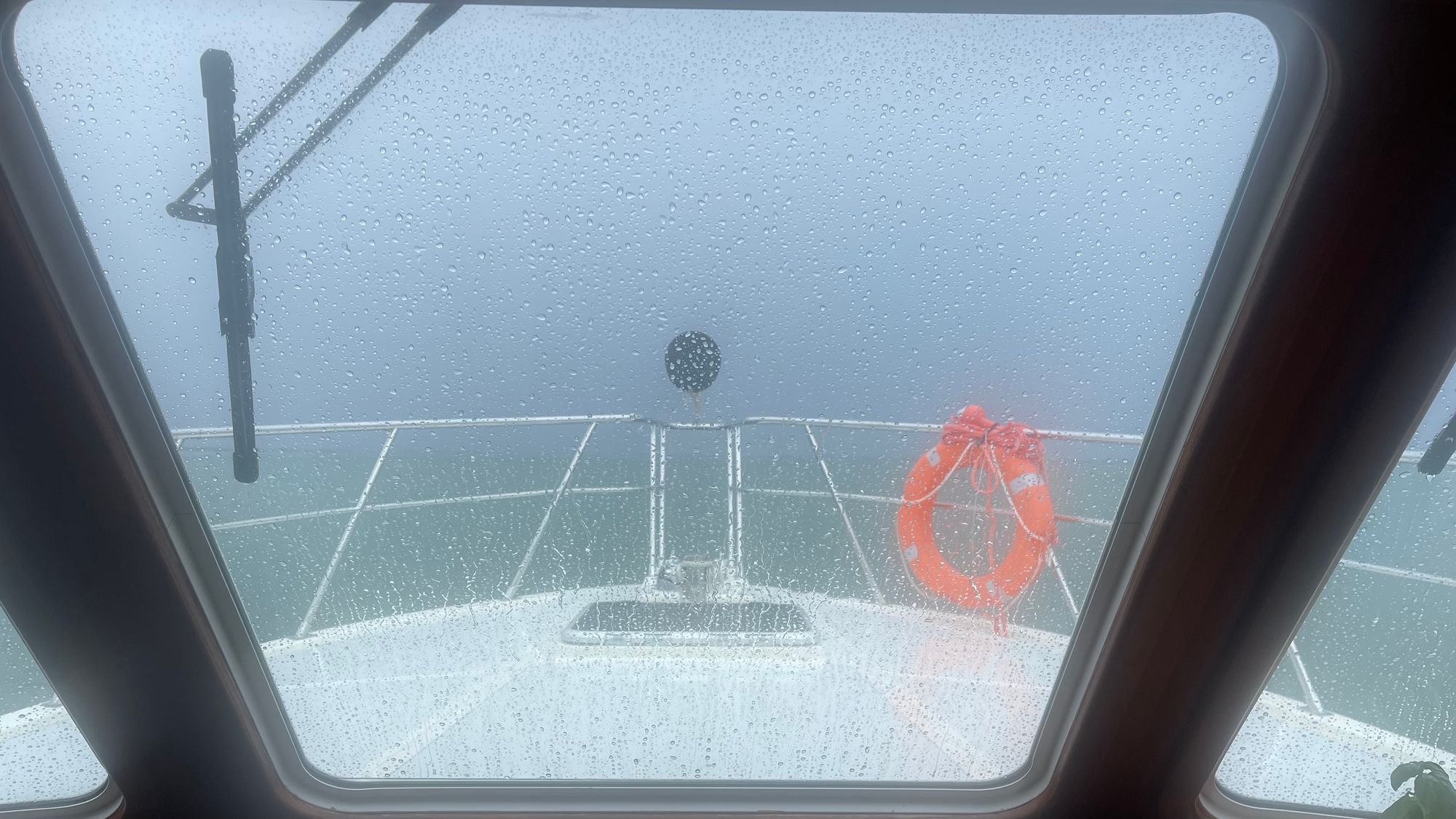
Of course if I go out to the rear deck and look behind us, only a nautical mile away is the very modern Italian resort city called Lignano Sabbiadora. It sits on a narrow strip of land sheltering the entrance to the Marano Lagoon where we're anchored at the moment. It's covered in high rise apartment buildings, cranes and the noise of construction. Every centimetre of sheltered coastline on the lagoon side is built up with marinas, while every possible space on the sea front side is covered with beach umbrellas.
In many ways that's the magic of boat life, especially around the Mediterranean. It's possible to find these moments of isolation and peace, while never actually being that far from the trappings of civilisation. Perhaps peaceful is overstating it however, the weather has been tricky this last week and finally caught us out last night with stronger than anticipated blows back here in the lagoon.
The isolation that seems so attractive means we're a long way from any shore (although you could possibly walk there through the mud only half a meter or less beneath the water). The wind is whipping up the waves across the surface of the water, short and sharp as they slap agains the hull. It's not unsafe, just noisy and occasionally uncomfortable. If there's a theme to this week, it's probably this - learning new things. Despite looking sheltered on paper, the lagoons offer less protection than you might think.
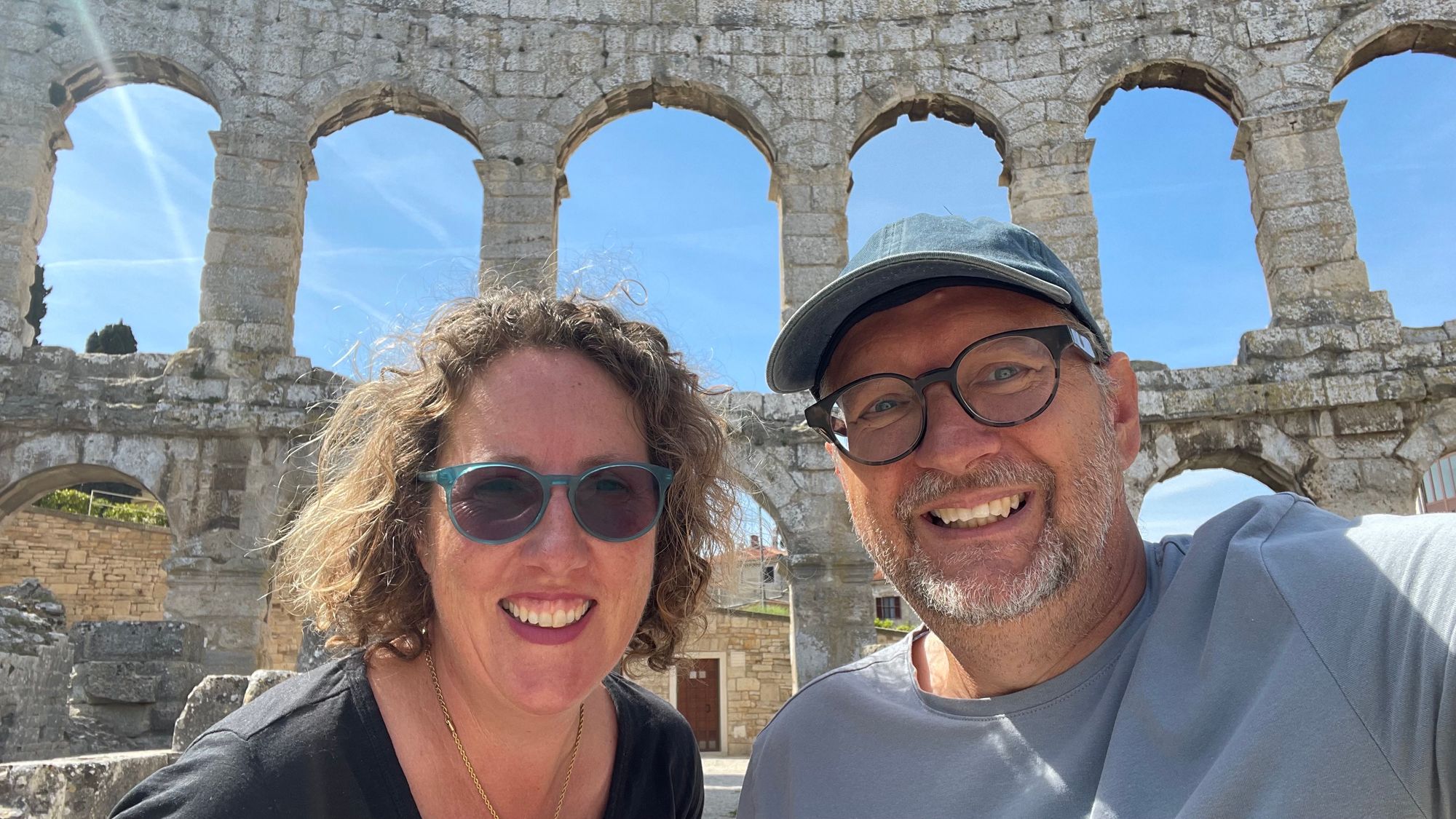
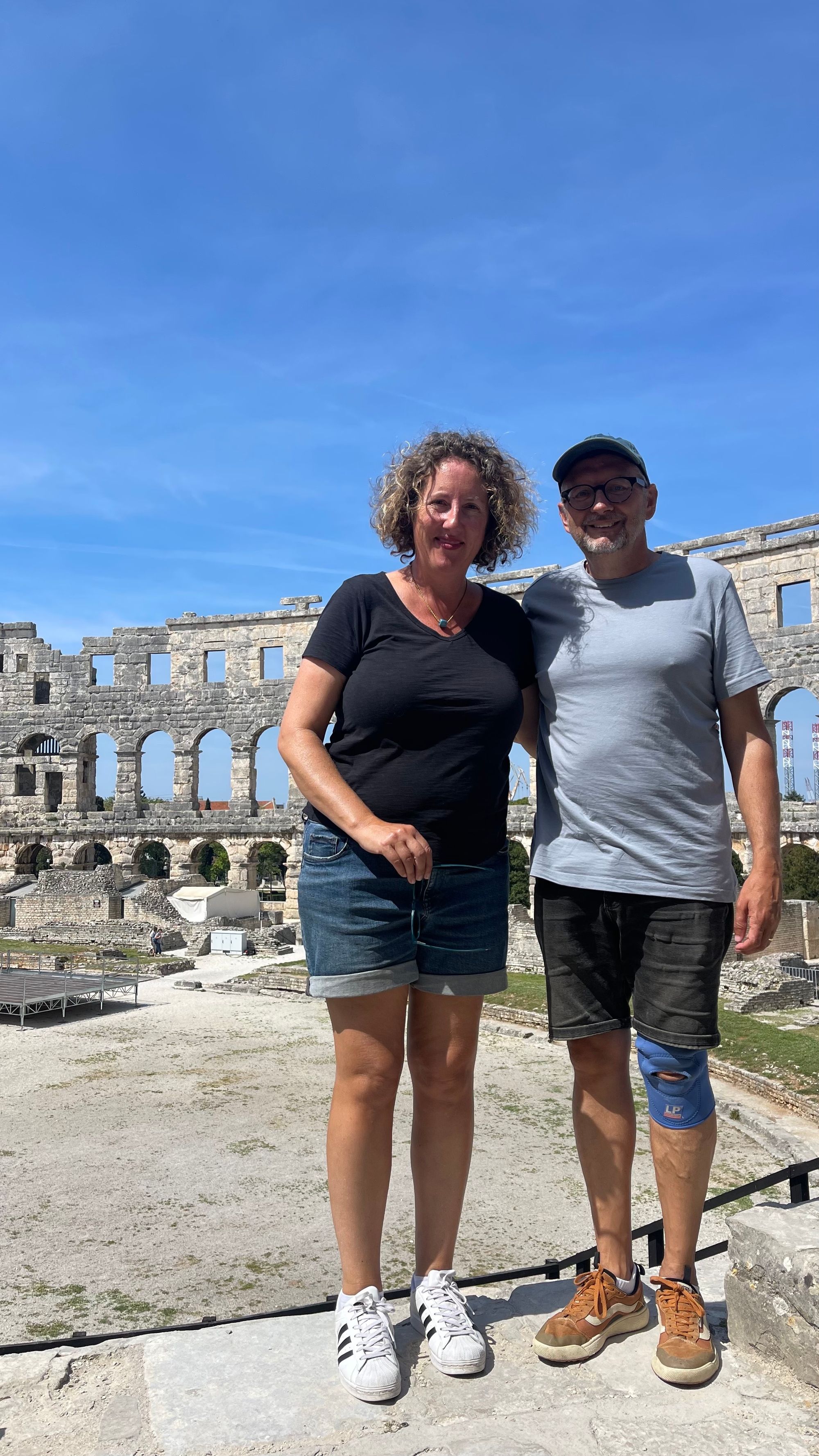
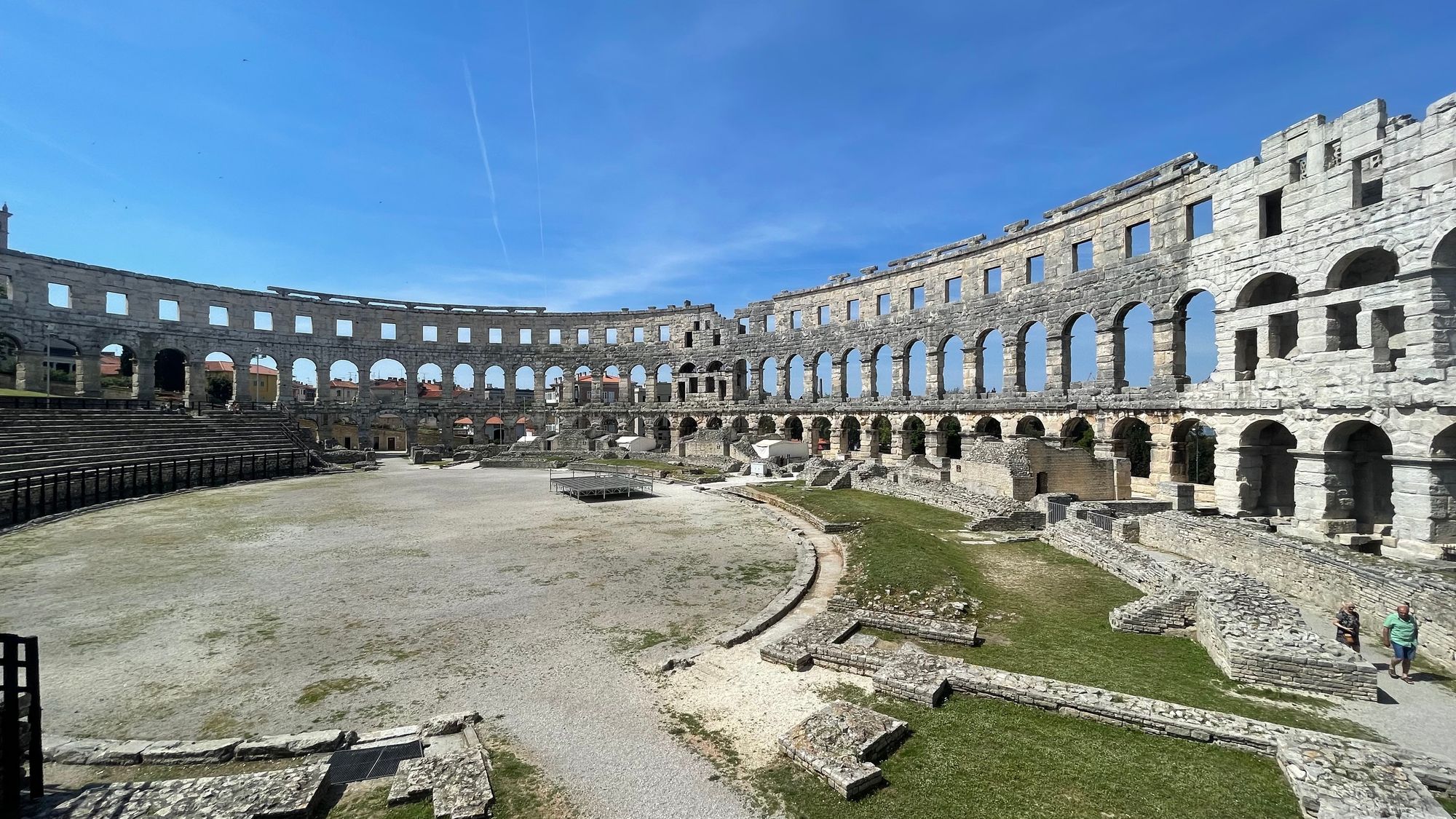
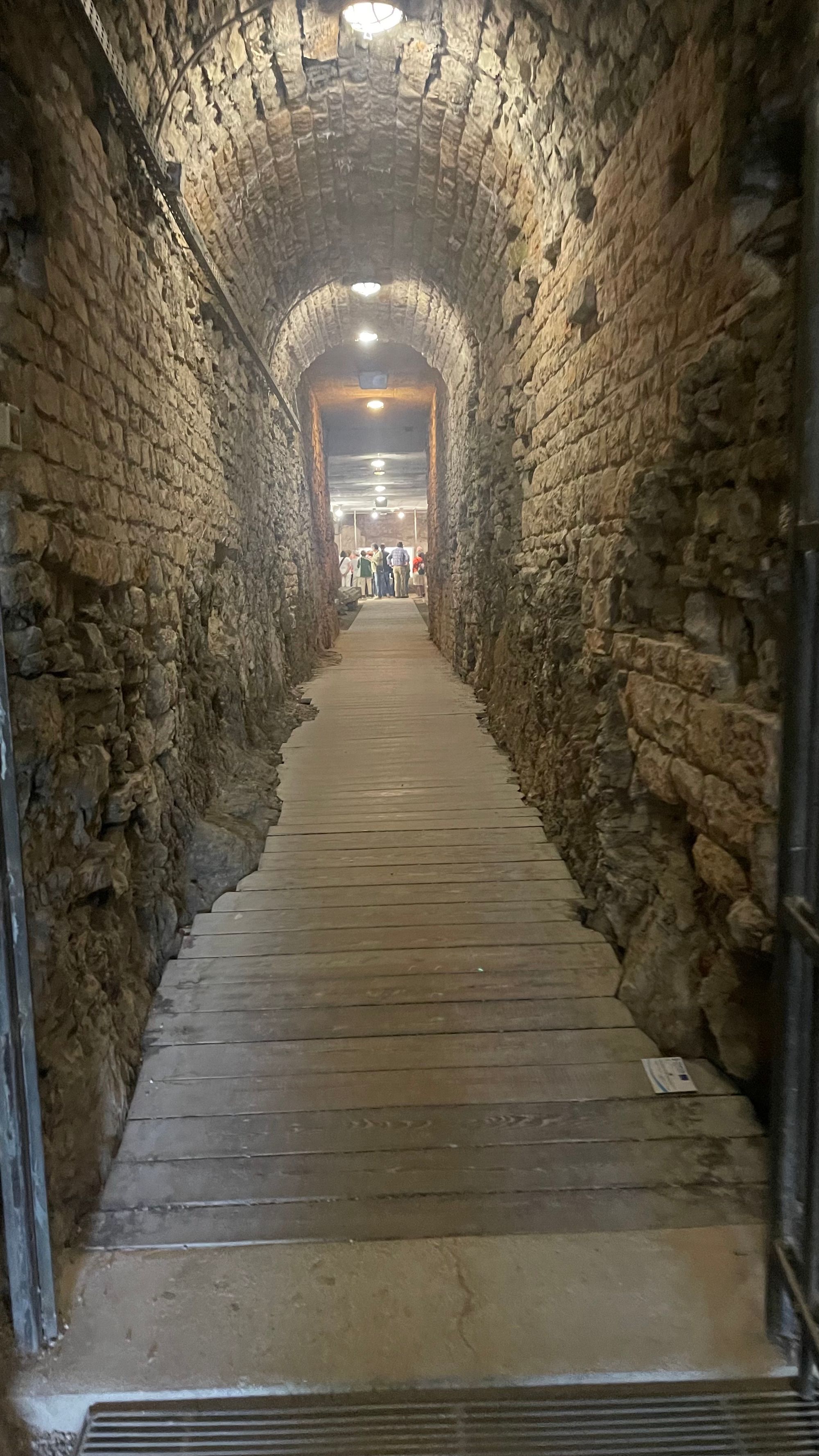
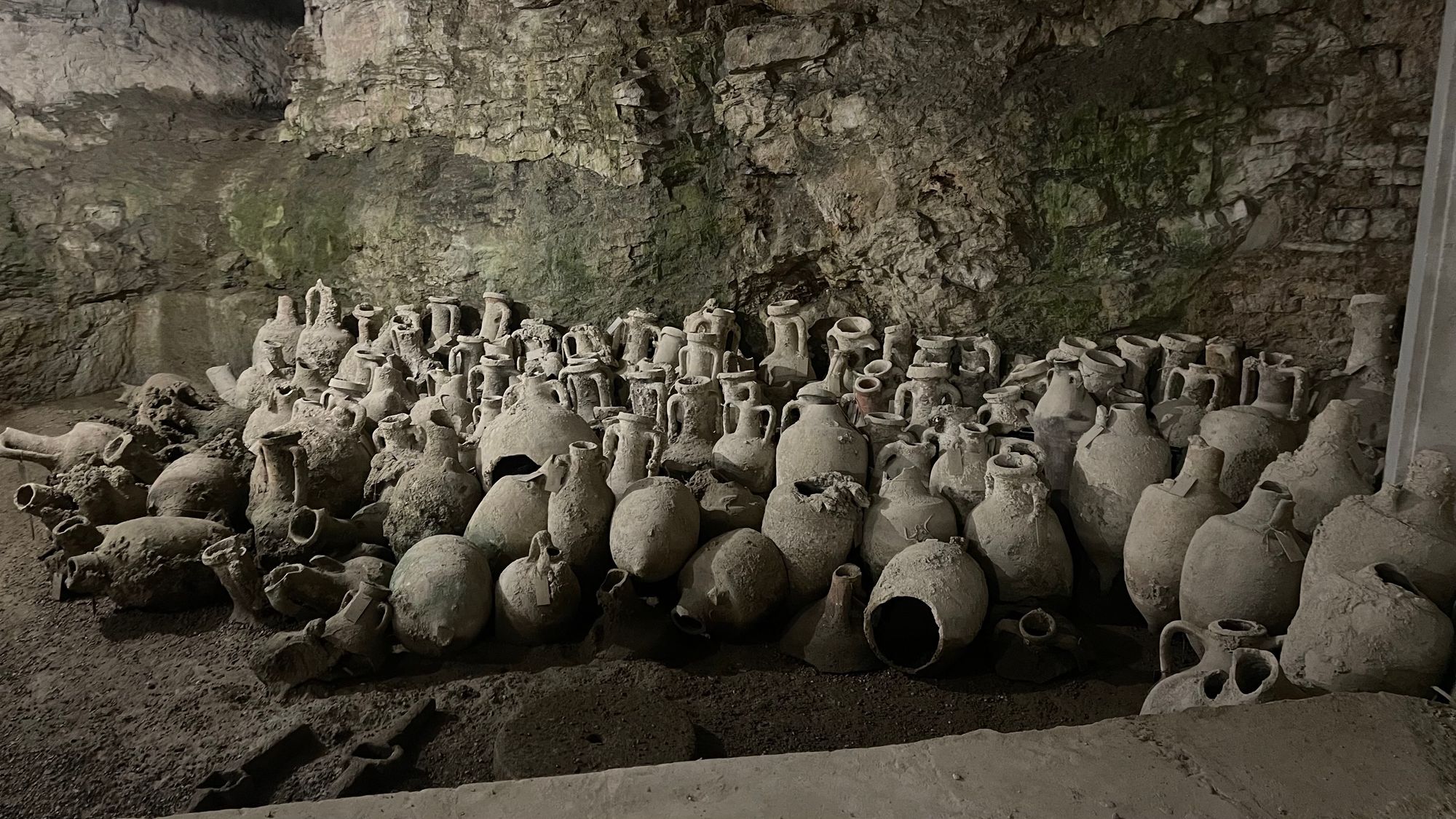
Back to last Sunday and Pula, Croatia. As promised we did get off the boat and explore more of the city. The arena was even more spectacular from the inside. Our only complaint is that the really interesting areas underneath - the intact rooms where the gladiators and animals were staged - had very little in the way of explanation. Instead they housed an exhibit of olive oil production throughout the Roman era. Interesting, but not what we were there for.
The Zero Strasse and the fort over the city were incredibly well preserved and enjoyable to explore. Although once again, the opportunity to explain the purpose of the tunnels was taken over by an exhibit on the electrification of the Pula city streets and the implementation of its tram network. Again, interesting, but not where I expected to find it. What little they shared is that the tunnels were built as bunkers to aid communication and provide shelter for around 6,000 people. In fact as I later learnt, Pula has an extensive network of tunnels (almost all shut down now) under the various hills that could shelter up to 50,000 people.
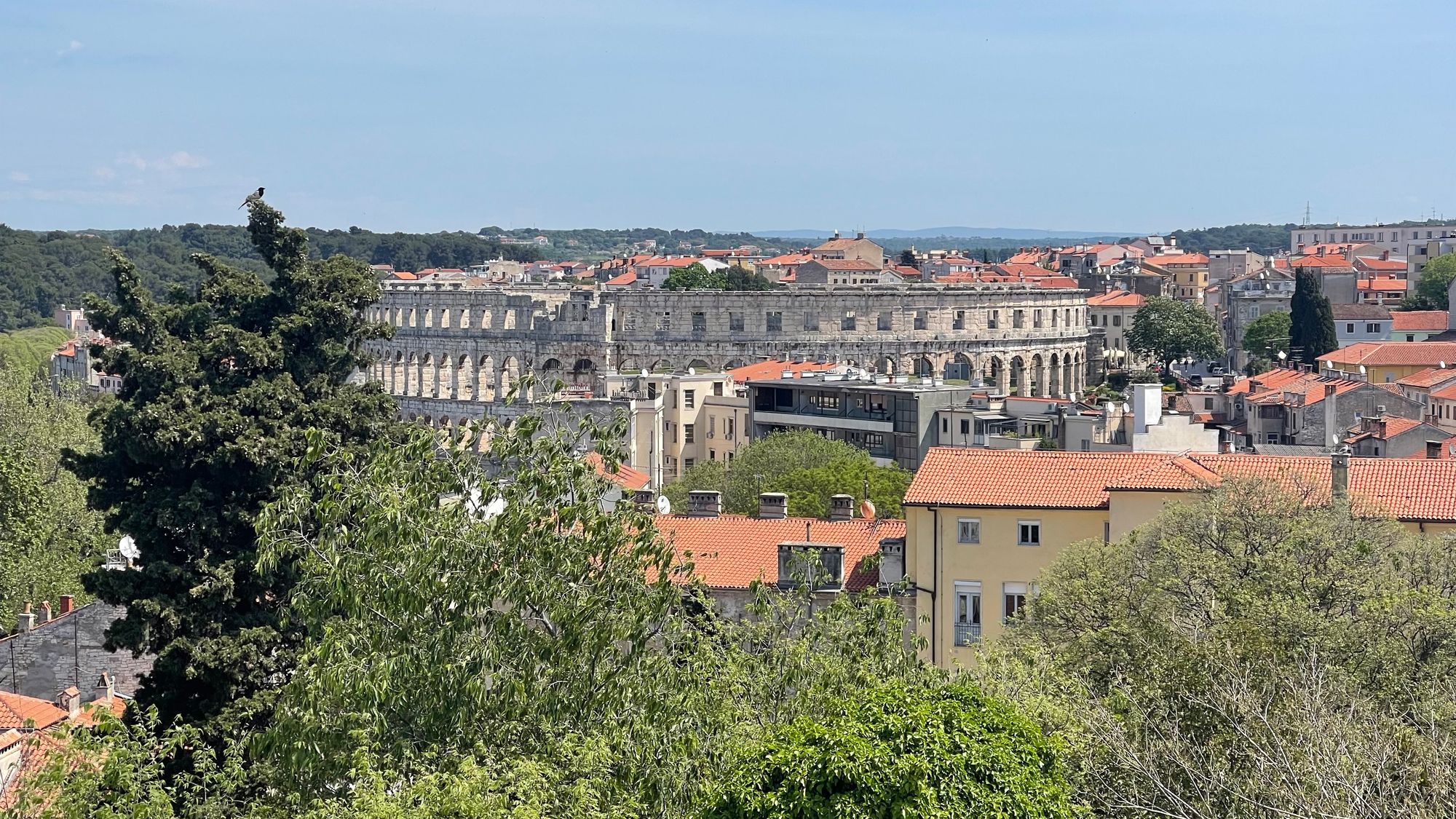
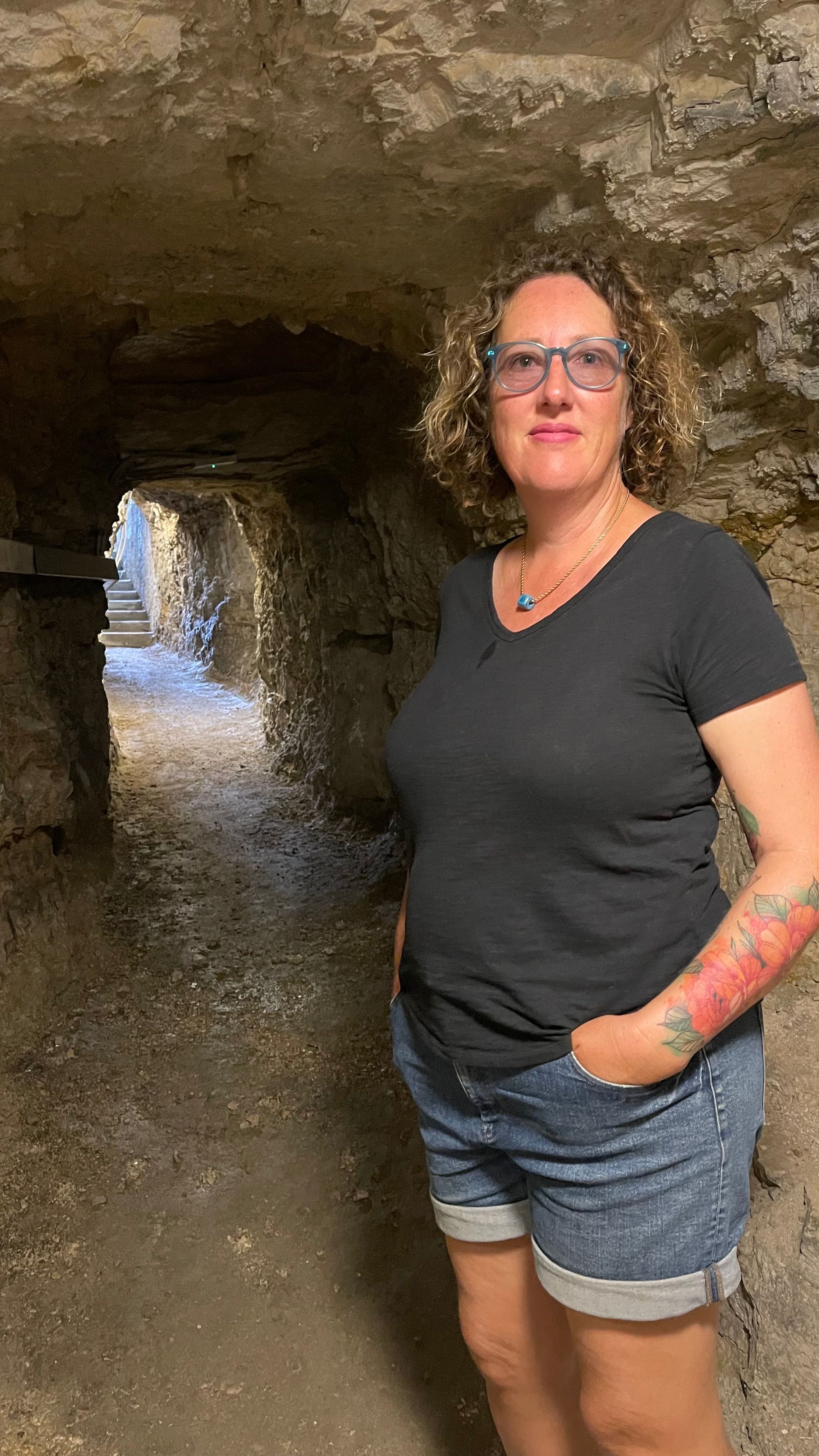
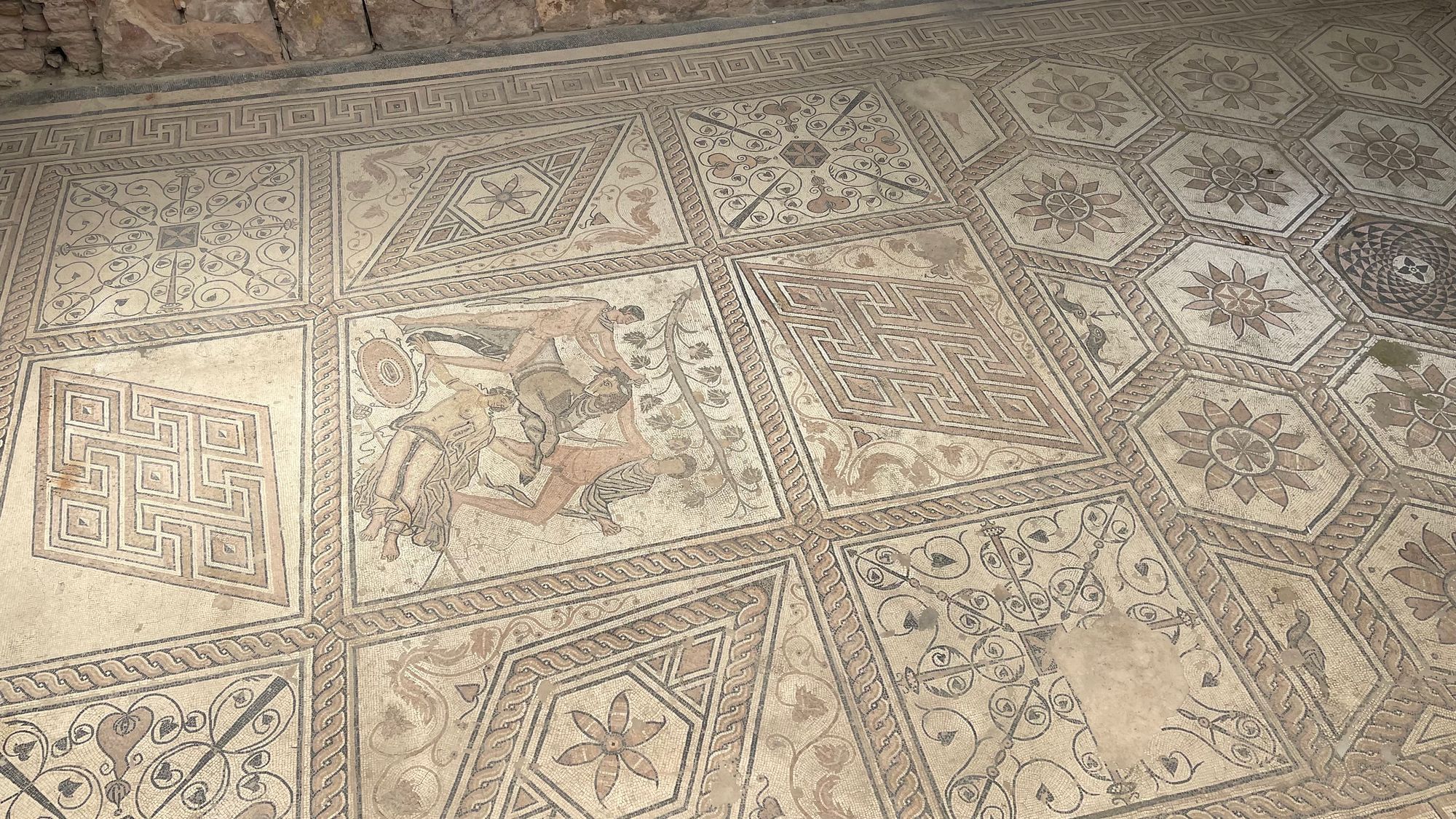
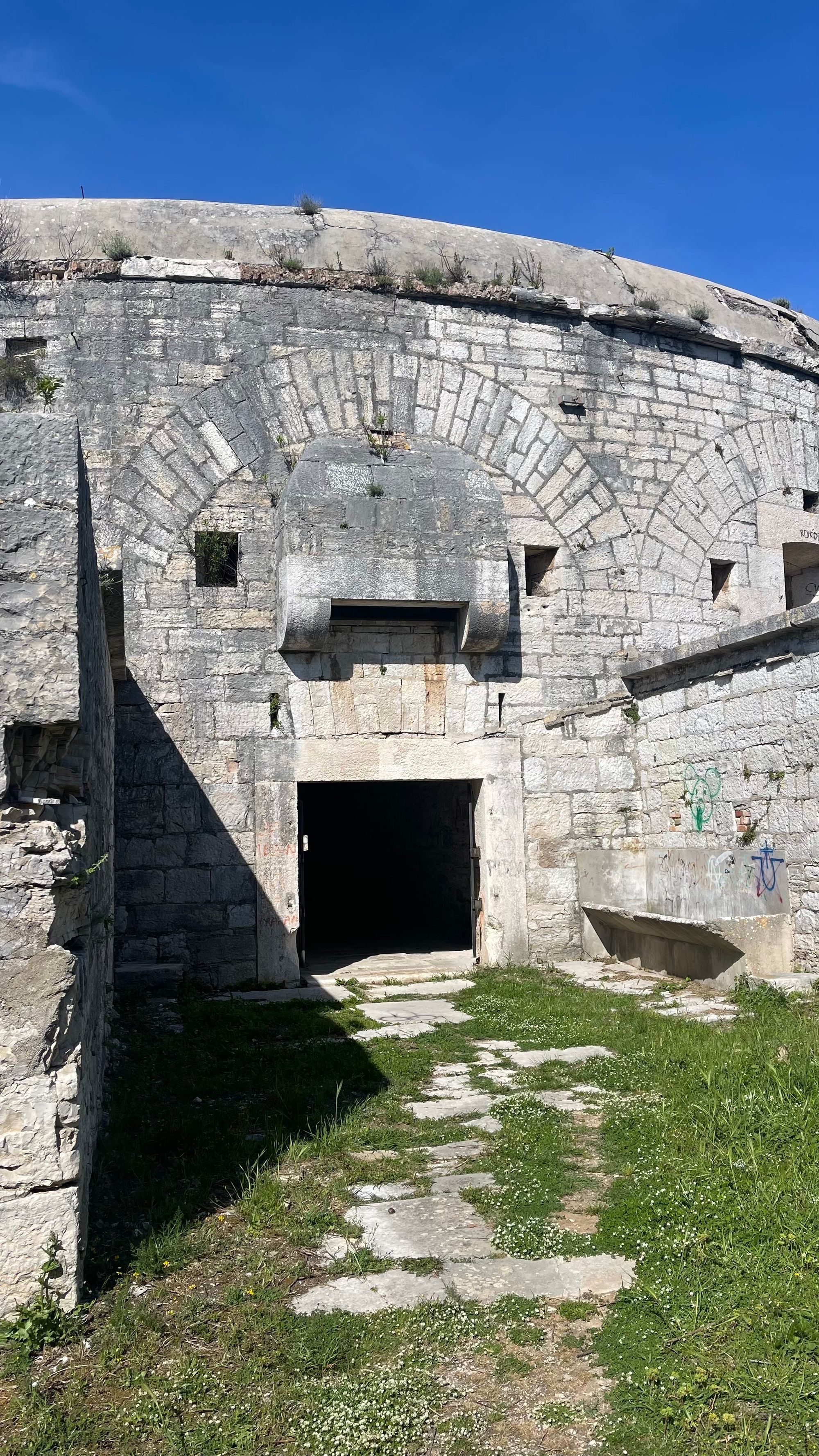
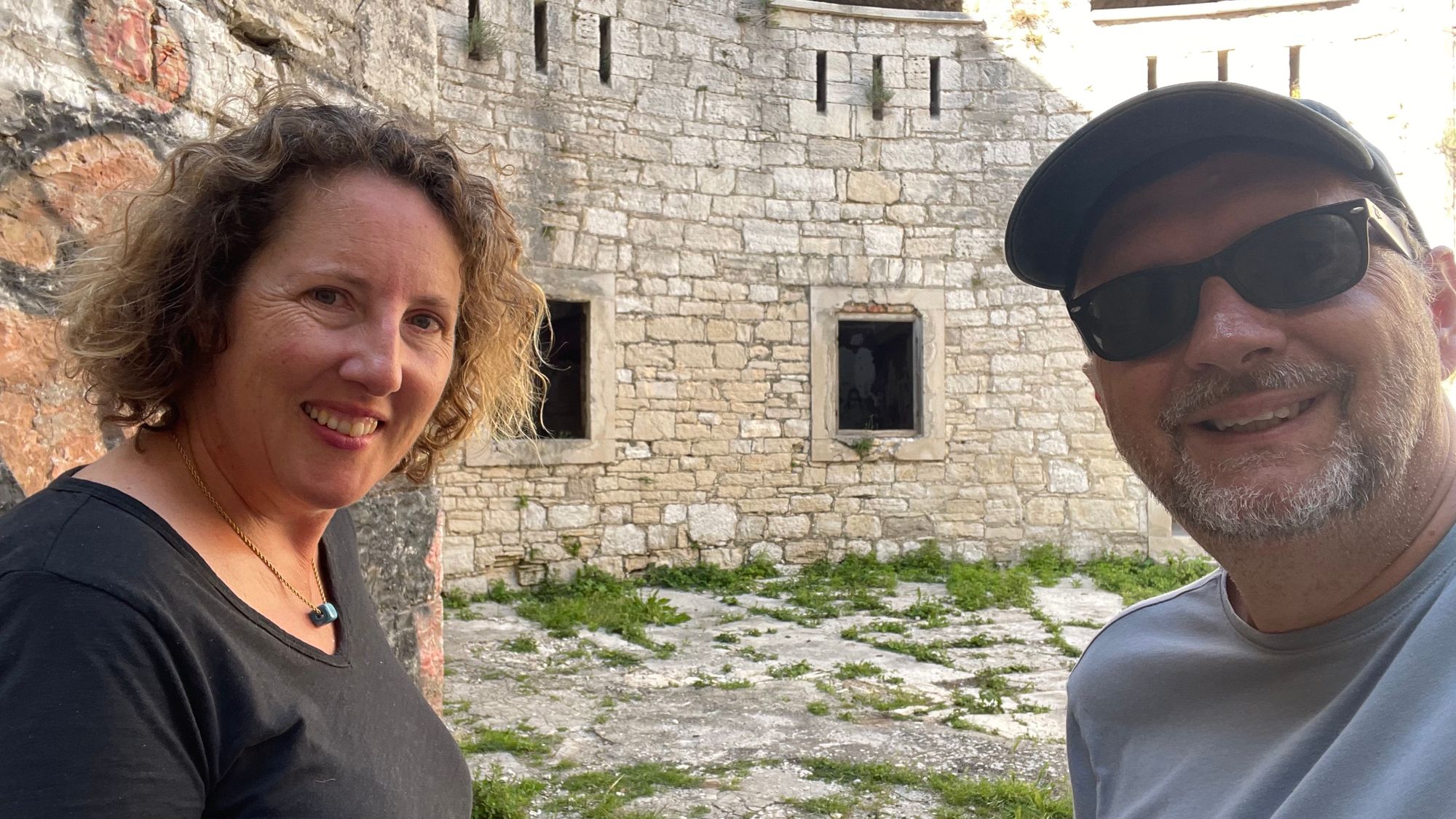
Fortunately in the fort built above the tunnels there was a very good museum on the history of the forts in the Pula area. The port was for many years the heart of the Austro Hungarian Empire's naval power and had a very extensive series of protective forts stretched out for a hundred kilometres around. The museum gave a good insight into what the life of a regular soldier was like in those days. Mostly cold and not very pleasant.
After the collapse of Austro-Hungaria at the end of World War I, Pula was briefly part of Italy and a lot of the Croatians were driven out by the Italian Fascist government and a lot of Italians were settled in the area. By World War II it was annexed by the Germans and used as a UBoat base. It was extensively bombed and damaged during the war. After the end of World War II, there was an exodus of the Italians as the Yugoslavian Partisans exacted revenge and it became a more Croatian population. There's a lot more to learn on this topic - as always this area is complex! And as I learnt later in the week, more complex again than I'd realised.
Pula strikes me as a city trying to find its feet. It's got some excellent attractions that do pull in tourists, but it also seems like the majority of people day trip to visit these, rolling in on big buses and rolling straight out again. The city and its surrounds are the faded remains of an industrial power that's long since had the lights switched off. Much like the tram network (ended in 1934, replaced by busses. See, I did read the displays even if I wished it was on something else).
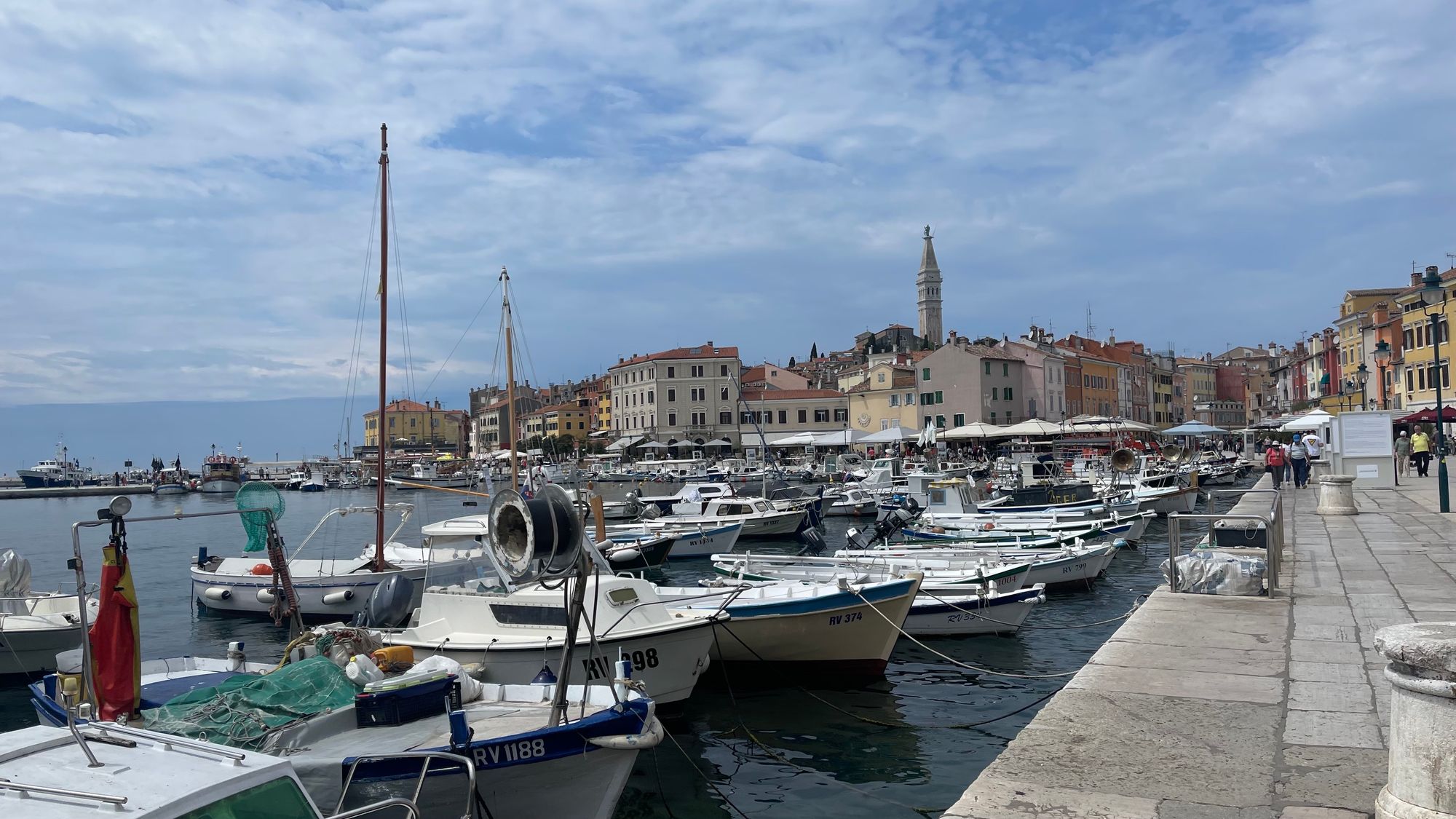
From Pula our next stop was Rovinj. This is apparently the second most visited city in Croatia, a lovely medieval/Venetian style city on the seaside. It is very beautiful, but it's also very touristy. Overall the week has gradually become more touristy as we get away from the islands, back on to the mainland and into the heart of the tourist trail.
We planned to meet with another couple from Porto Montenegro, Seamus and Sandy who were already there. As we pulled into the bay, it was all mooring balls. It's a definite frustration with Croatia that if you want to visit anywhere, you need to pay. Sure there are free anchorages around, but they are usually quite remote and it's difficult to visit the main attractions from them.
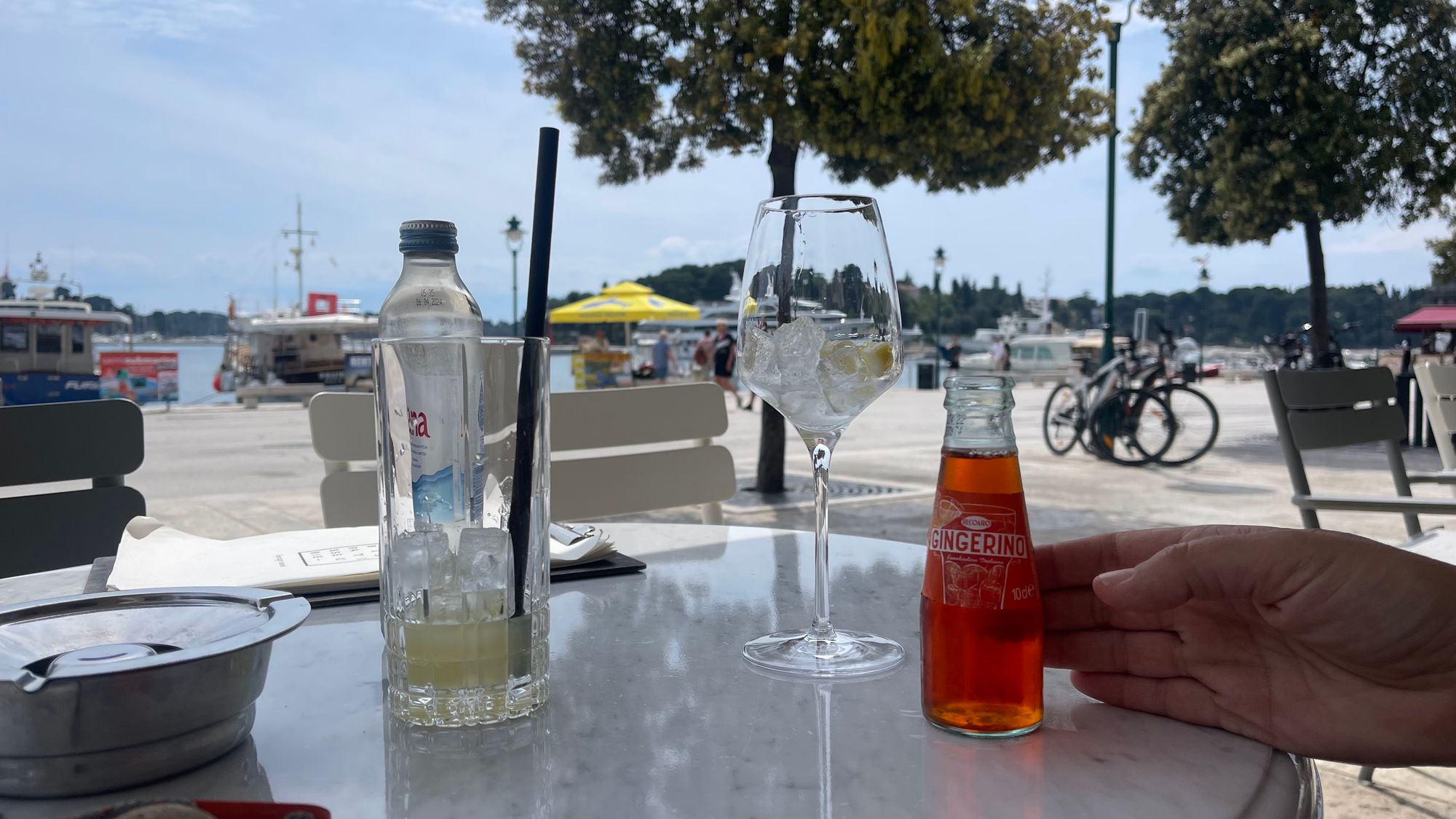
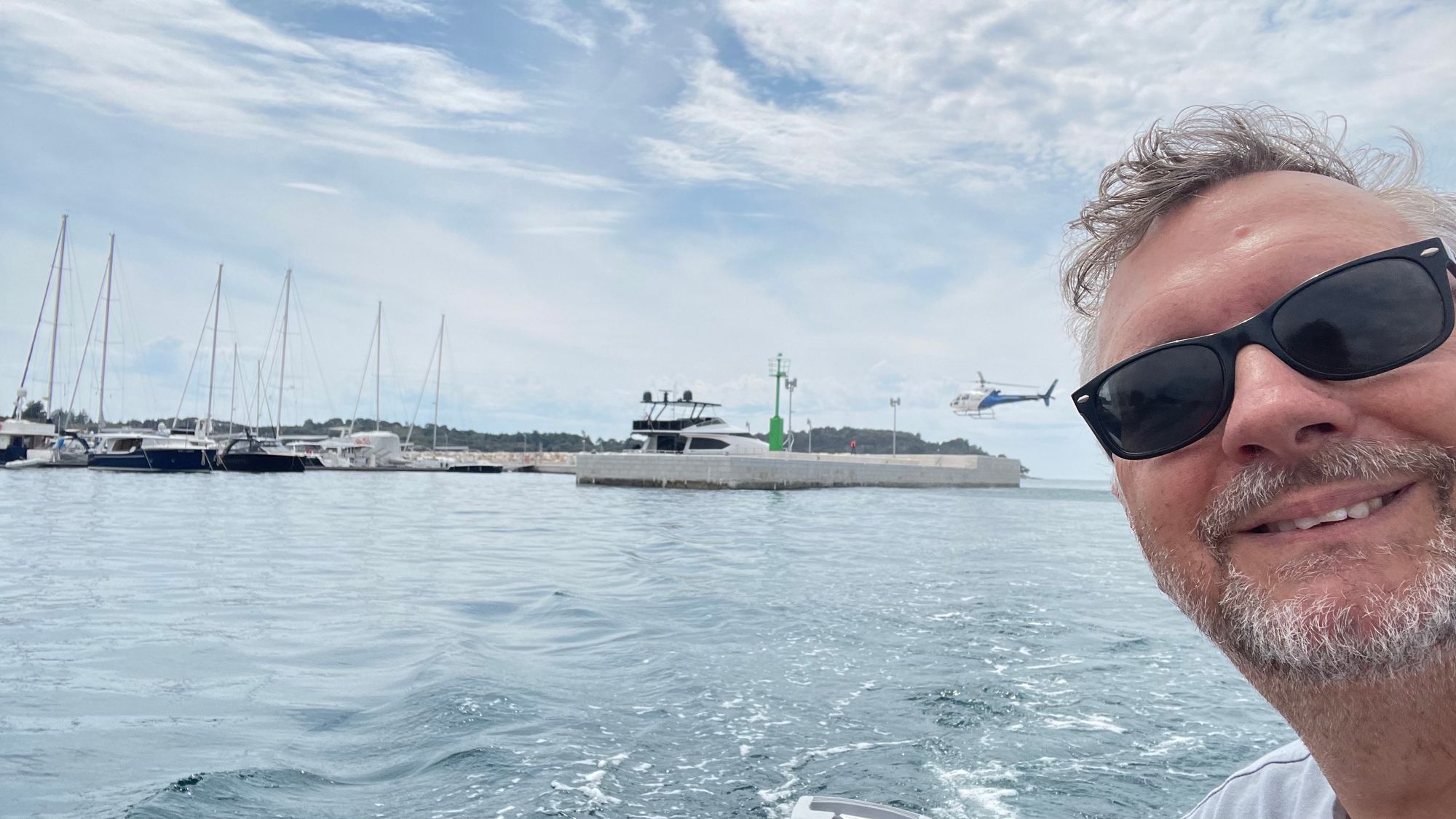
There was a strong swell rolling into the bay and the boat was jerking up and down a lot as we tried to tie on. We'd already heard about these buoys from Linda and Mike and they weren't wrong. They were a challenge. At first we tried to go forwards towards the buoy, I hooked it with the boat hook but the chain on the bottom was too short to tie up to and we quickly gave up on that idea (after almost losing the boat hook over the side).
Next we tried reversing on to the buoy, but the swell was such that it just kicked us around and we quickly concluded this wasn't safe either - we'd end up wrapping a rope in the prop. There was too much swell for Karina to hold Matilda steady, so instead we decided to drop Tilly the tender in and just tie up that way. As we were doing this, who should arrive by tender but Seamus and Sandy who helped us tie off quickly - a very welcome relief!
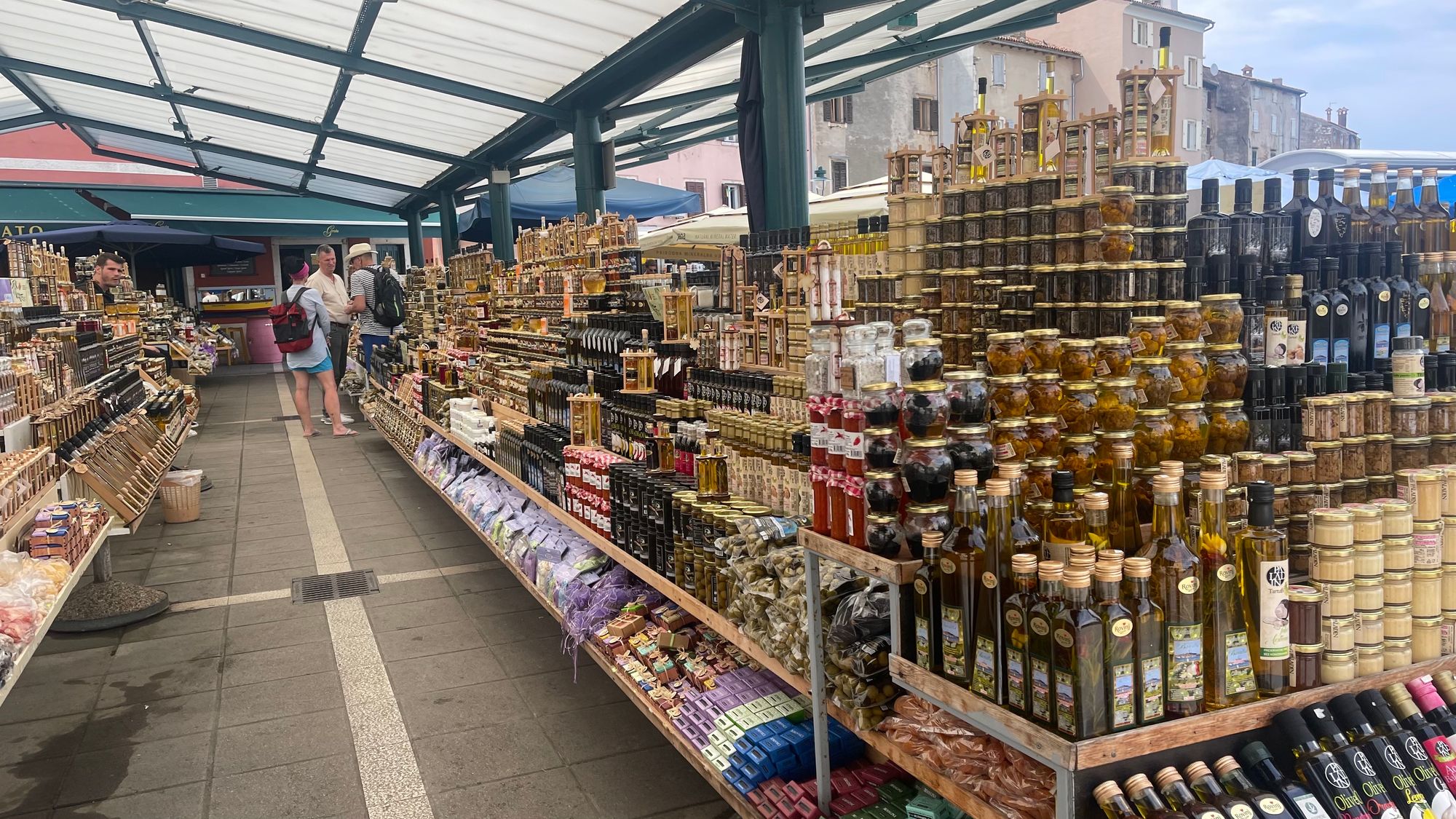
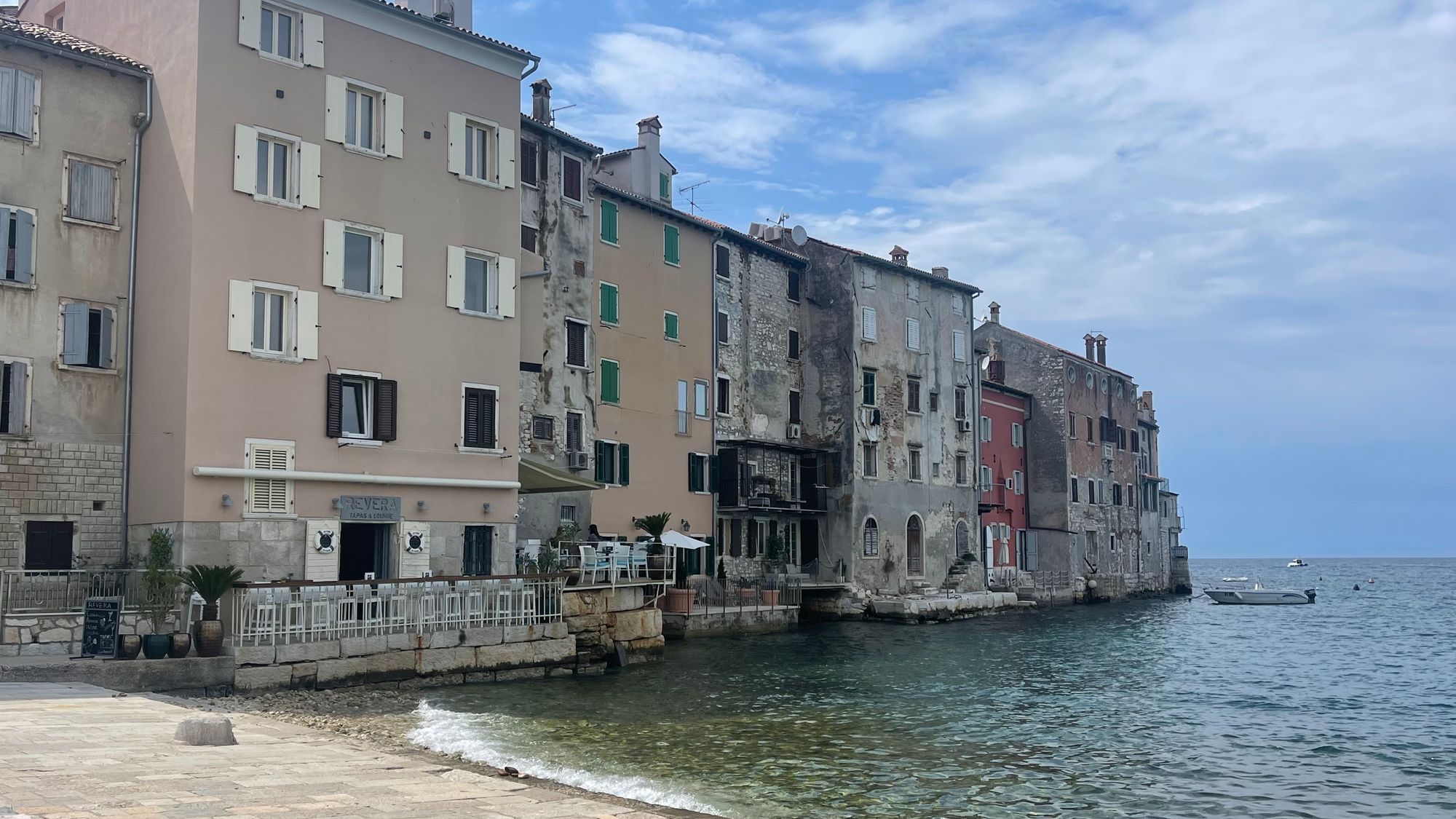
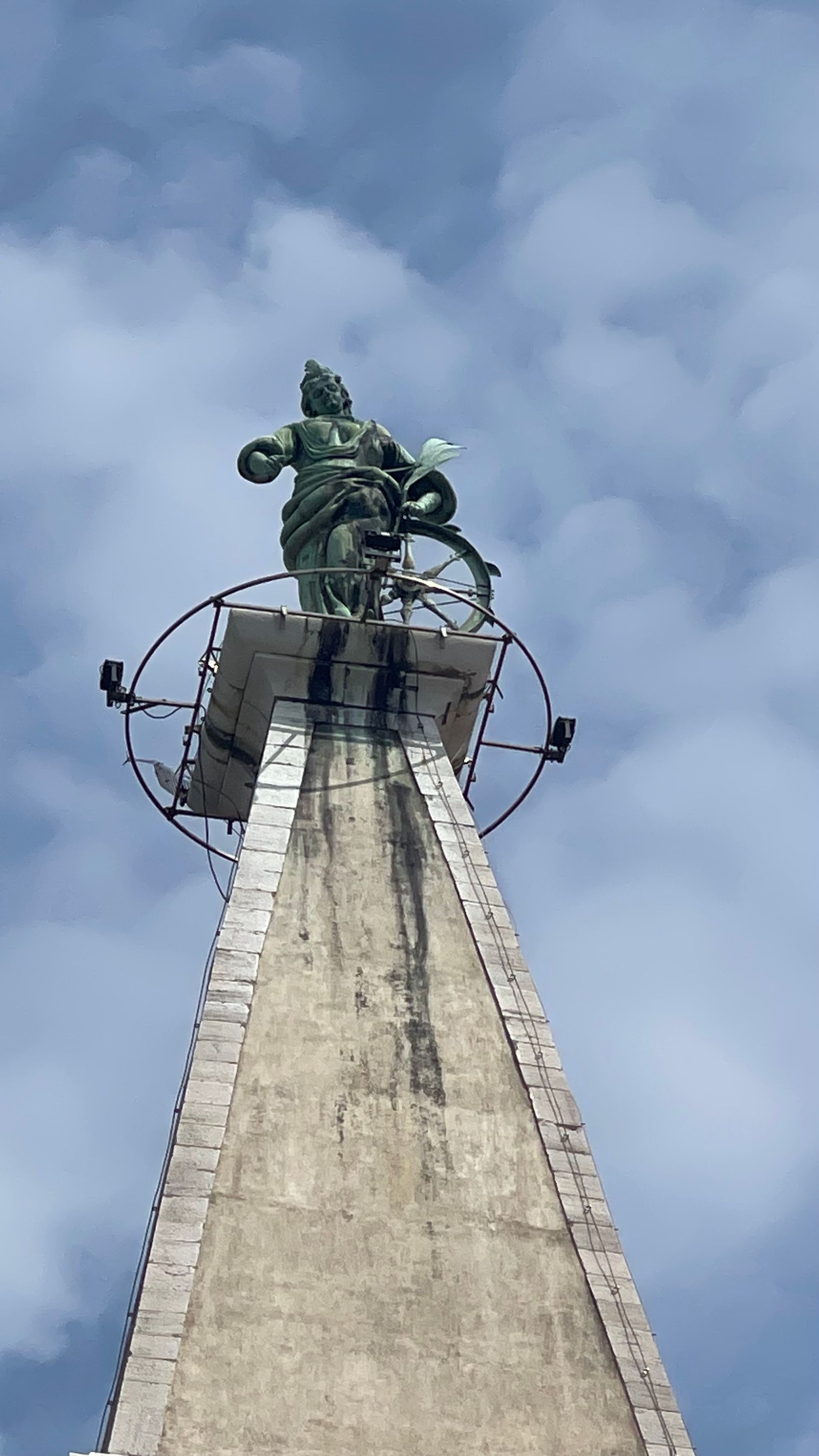

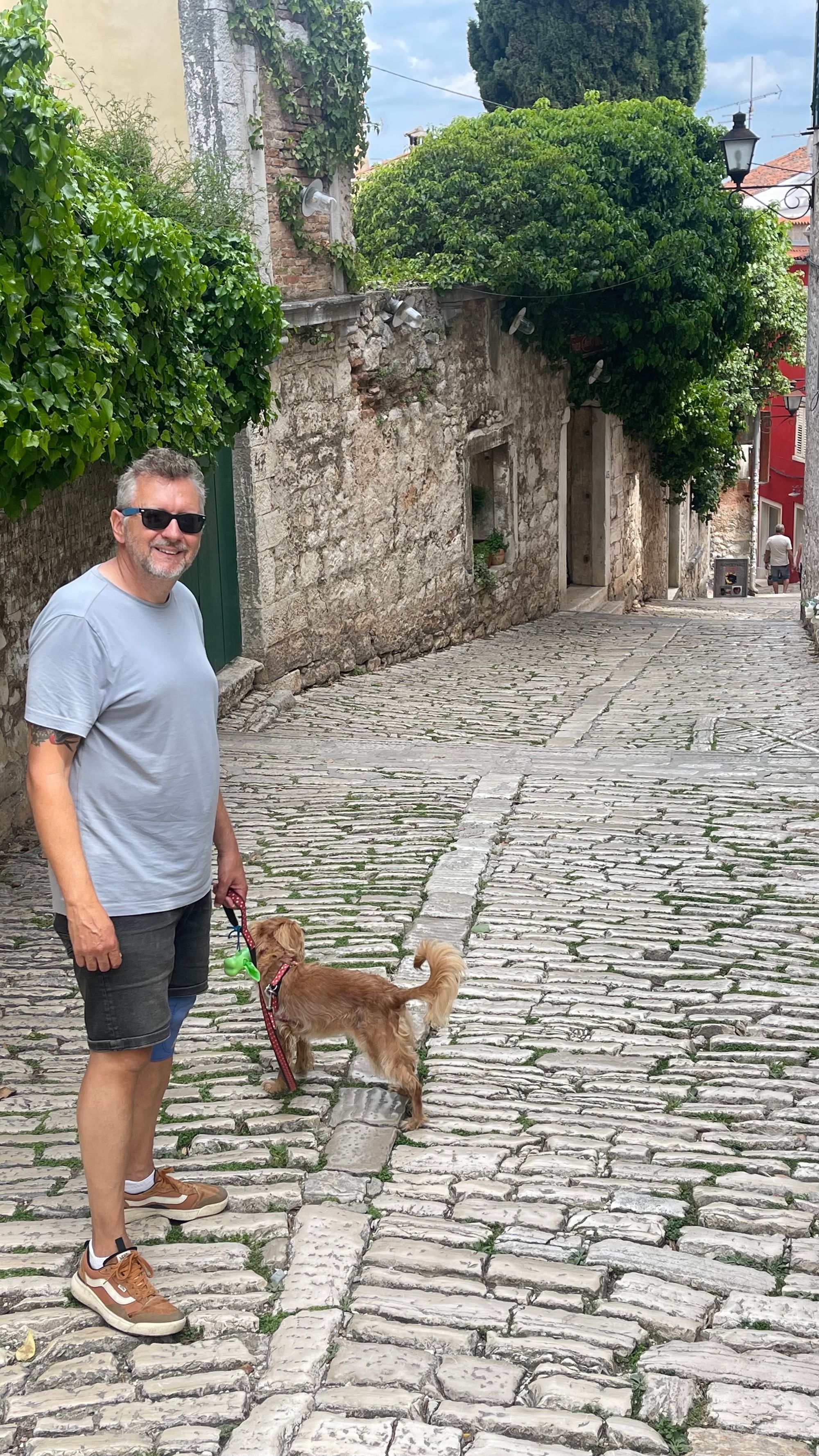
That afternoon we met them on shore and after sitting and watching the boats for while (my first assisting a fellow boater tie off of at a town quay for the season), we explored the city separately and then met up for dinner. Once again it was a delight to share some time with people that we have a common background with and we had a great time. I think we're actually wintering in the same marina, so we'll definitely be meeting them again.
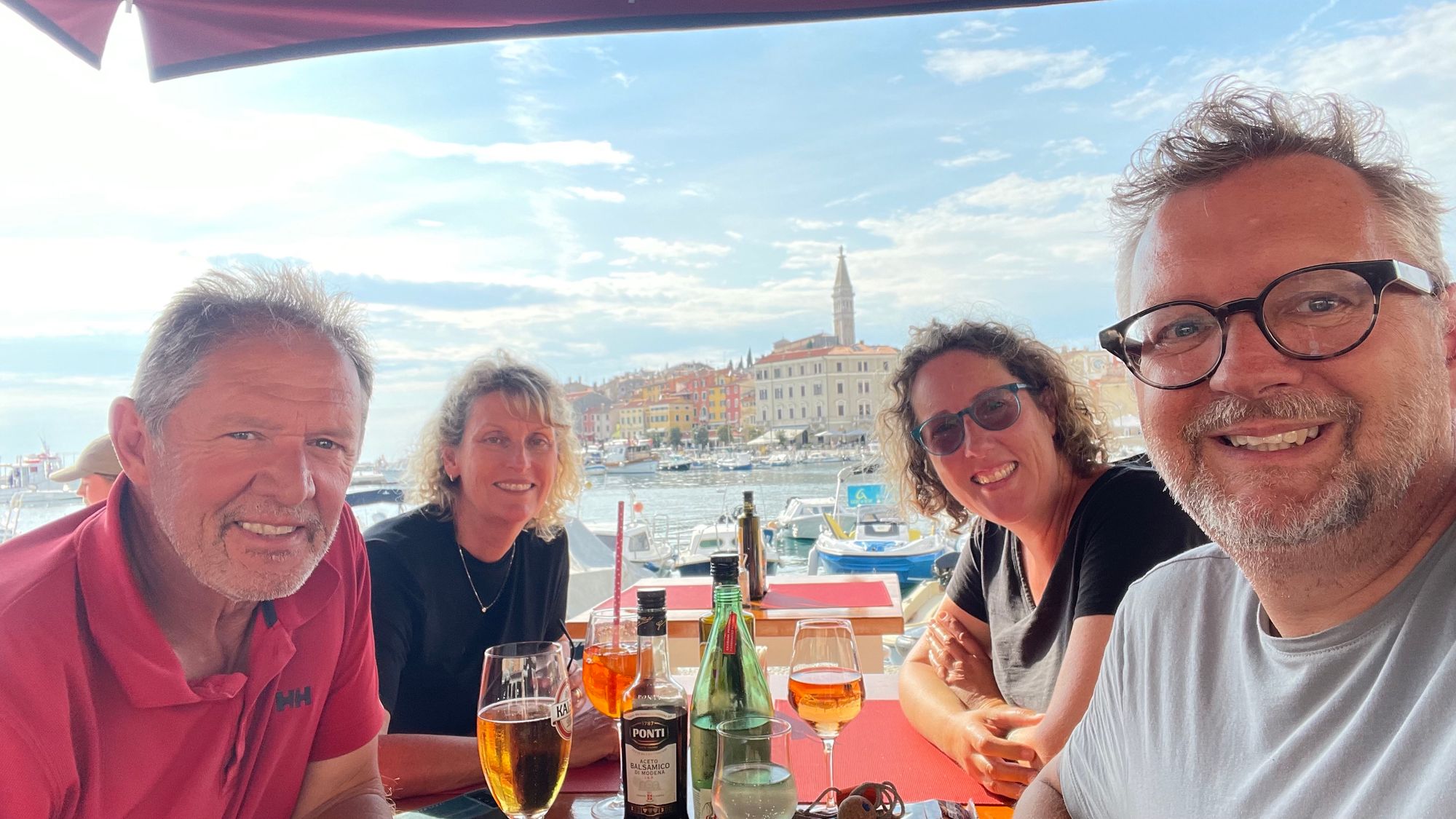
As we headed back to Matilda after dinner, we saw a sail boat that had dropped anchor just in front of us. We could see the woman on board looking over the bow at the anchor, then walking back to the helm. The boat was moving in a strange way, it wasn't lying with the wind, it was jerking around and spinning on its chain.
"You should go and see if they need some help." Karina told me.
I dropped her and Rosie off back at Matilda then went over to the boat. There I met Jasna, who told me "I'm solo, I think my anchor's stuck - could you help me?"
Well of course! I hopped up onto her boat and while she steered I directed from the bow. With someone at the front able to point out which way the chain was lying, she was quickly able to manoeuvre her boat free, then chain unsticking itself with a loud metallic crunch.
I then used Tilly to help her tie on to a mooring ball and invited her aboard Matilda for drinks. No second invitation needed, she hopped on her paddle board and came over to say hi, with a bottle of wine as a thank you.
It was a really interesting evening, Jasna is a very experienced sailor who has written several books about her experiences both cruising on long passages and exploring Polynesia. She's a sailing instructor and writer and was at the end of a three week holiday enjoying her boat before the season starts.
The question of "Where are you from?" had an interesting response.
"Well I'm Slovenian, but I was born in Italy."
OK, there's more to unpick here. As she briefly explained, the Istrian peninsula is ethnically complex (with Croatians, Slovenians and Italians). At the end of World War II, the allies created the "Free State of Trieste" which encompassed part of the peninsula around Trieste for many reasons, but one of which was to protect the ethnic populations (all those Italians running north from Pula for example). People don't live in nice straight lines, they live in communities, so this town might be Italian, this next when might be Slovenian etc... It was also the center of a lot of "Cold war" activities, a barrier between the communist Yugoslavia and Italy.
Eventually they came to a compromise where they split the territories roughly in half and this part went to Slovenia (Yugoslavia), this part to Italy BUT with protections - if you spoke Slovenian, you had to have access to Slovenian schools etc. Same in Slovenia, if you spoke Italian you had to have access to Italian schools. Hence Jasna is Slovenian, but born in Italy. Her family all identifies with Slovenian ethnicity and speaks Slovenian at home. She also went to a Slovenian speaking school. You just trip over history everywhere you go in this area.

Our thoughts were now turning to leaving Croatia. It's been beautiful, but I think if we're honest, we also found it a bit wearying. It's a country that's so popular for cruising in that it's found a way to nickel and dime almost every experience. We love being able to get into the towns and cities in Greece on Matilda, but here in Croatia, it was almost impossible - you could anchor for free a long way off, or you had to pay. Sometimes we got away with free this early in the season, but there was always a worry someone would come by asking for money.
I know that Greece has a reputation for inconsistency amongst its port police, but we've become used to it and never had any issues ourselves. We smile and nod and deal with it. But in Croatia, we felt frustrated because at every turn there seems to be hidden rules that are unclear on how to comply with them. In many ways I don't even think the Croatians know how to comply with them! Which was all stressing us out as we planned to leave.
The big question "Now Croatia is in Schengen, do we need to any formal paperwork to check out the boat to go to Italy?"
Jasna, who had just come down from Italy for three weeks was firmly of the opinion we did not. She hadn't done anything beyond paying the tourist tax and the vignette and she was just heading straight back to Trieste the next day.
We'd asked at the port authority in Rovinj, they had no idea. The advice they gave "Go speak to police" didn't match anything else we'd heard.
We decided we'd make our final stop Umag in Croatia. It was a good place to break up the journey and we could watch the weather which was showing a Bora brewing (that strong north wind they get around this area that we previously experienced back in Montenegro). We also asked the Port Authority there on what we needed to do to depart and they confidently said "No need to do anything, just go." We'll go with that.
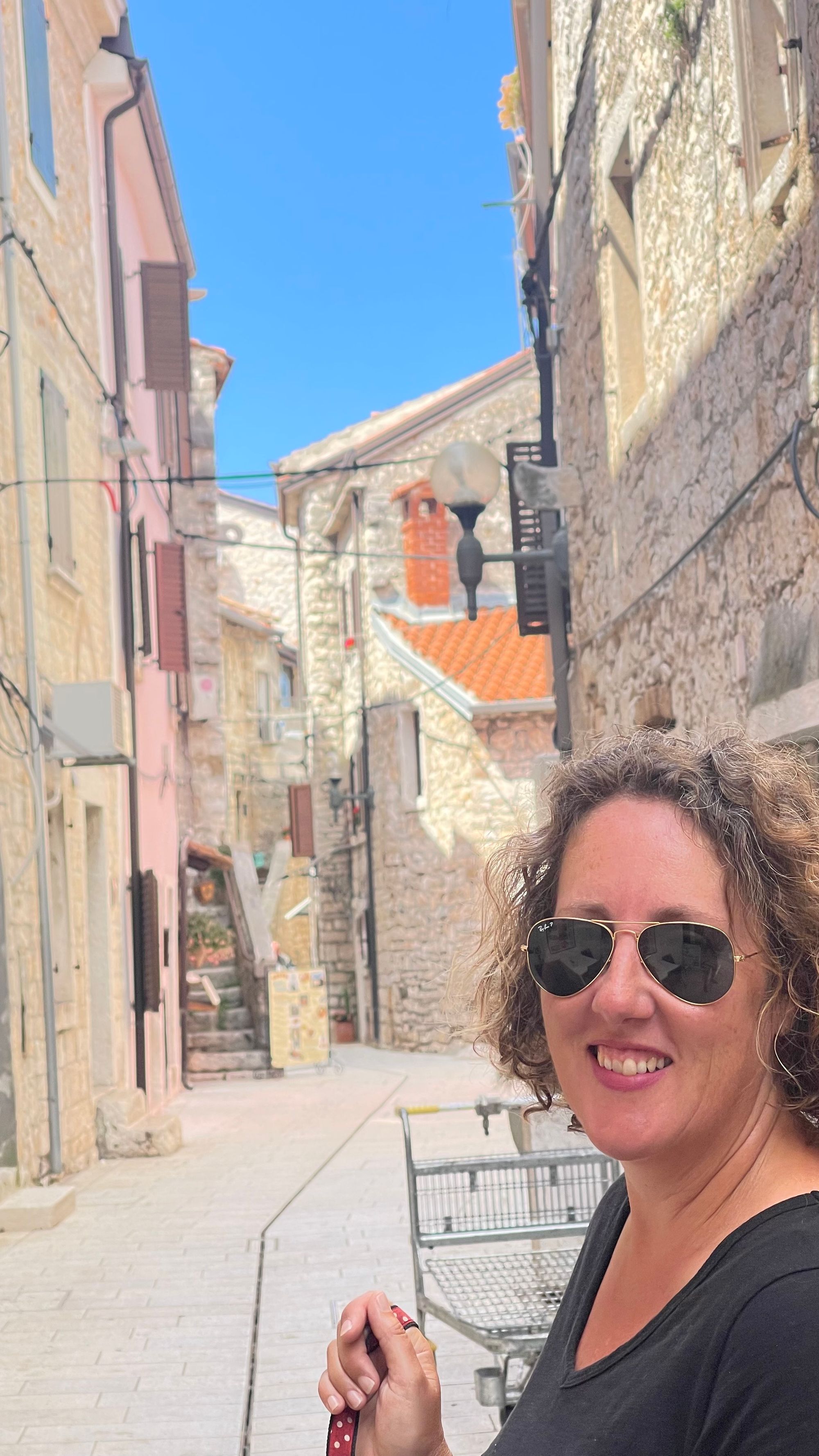
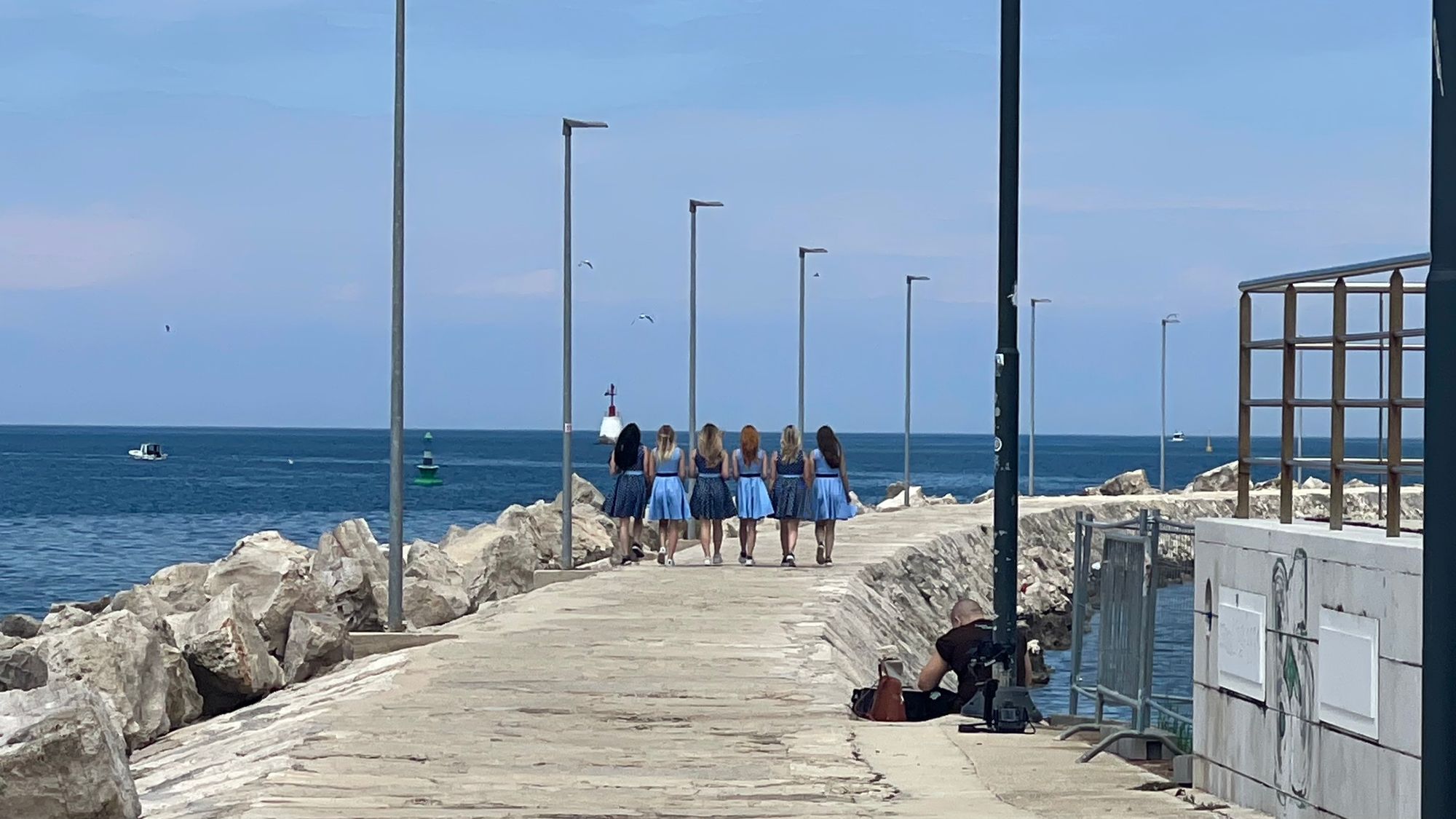
It was a last minute decision on departing - the Bora was due that night but the marina in Trieste hadn't confirmed our booking, so we were resigning ourselves to a couple of days waiting out the wind in Umag when at 9.30AM in the morning they confirmed. "Yes, we have availability tonight."
We quickly made ready, headed over the fuel dock (€1.23 a litre for diesel, can't pass that up!), loaded up 800 litres of fuel and we were off, leaving Croatia behind.
Somewhat apprehensively we crossed the border from Croatia to Slovenia without any incident at all. No coast guard on the radio asking us what we were doing. It was a complete non-event.
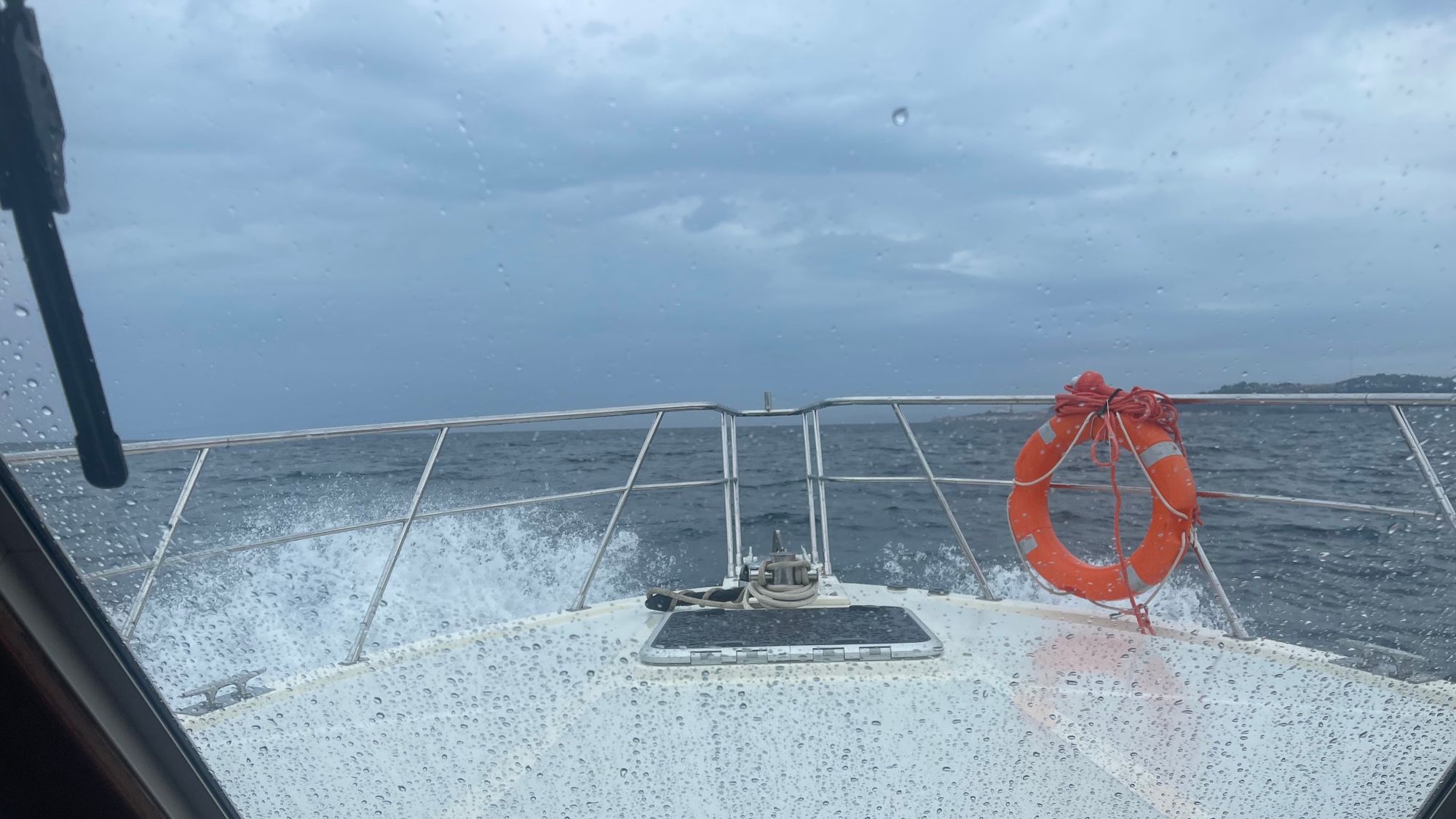
It marked a first for Matilda as we motored on past the very short coast of Slovenia and then on and into Italian waters. Three countries in one day is new for us on the boat.
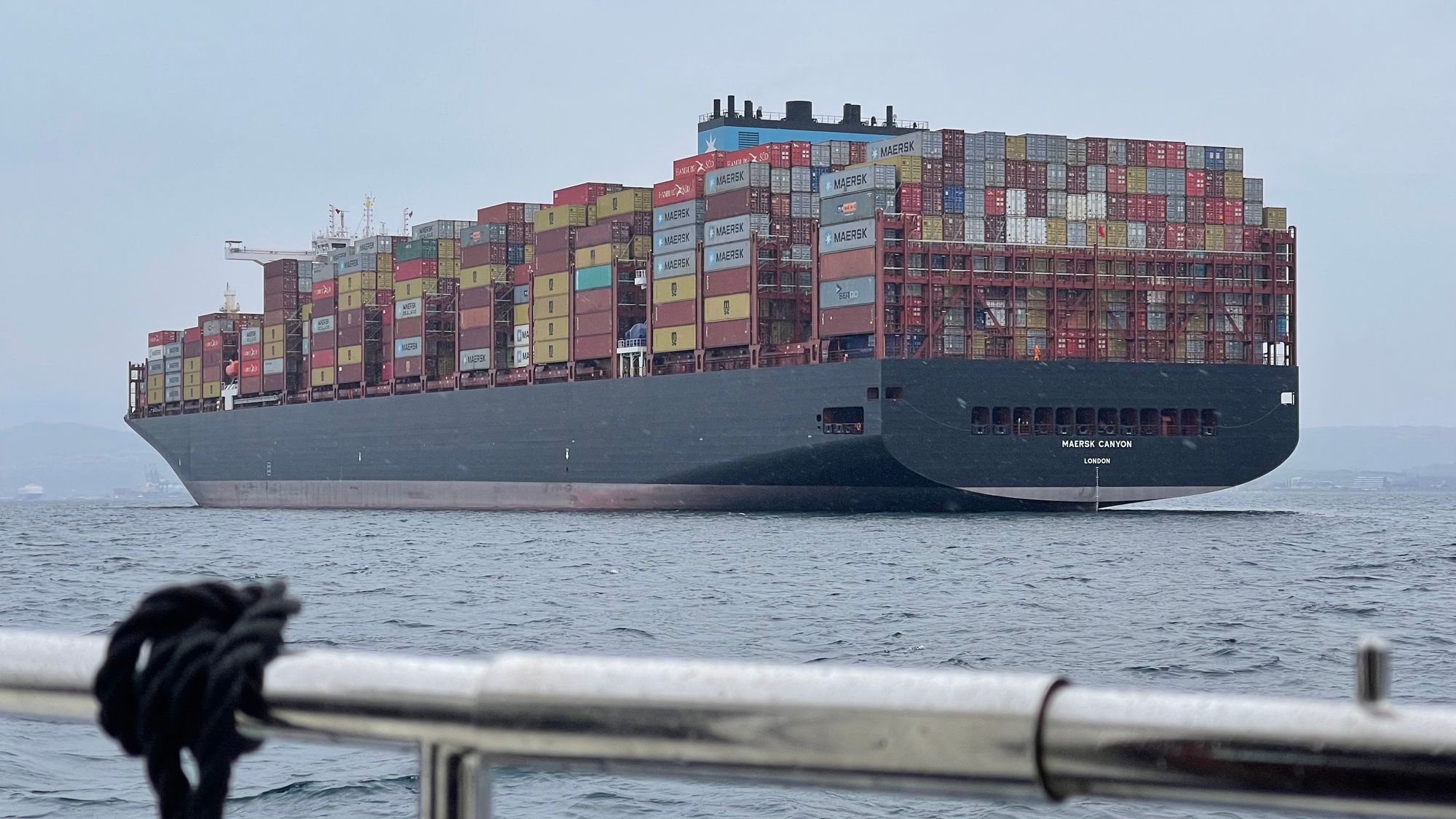
Arriving in Trieste at the marina, one of the first things we noticed is just how small it was. We'd heard from others that as you head further west in the Mediterranean the boats generally get a bit smaller and Matilda was certainly one of the biggest boats in Marina San Giusto. It meant that negotiating her down the fairways in strong gusts of wind was quite nerve wracking. So far we're seeing marinas EVERYWHERE in Italy, but they are all quite small and often sub-divided into two or three separate marinas inside the one breakwater.
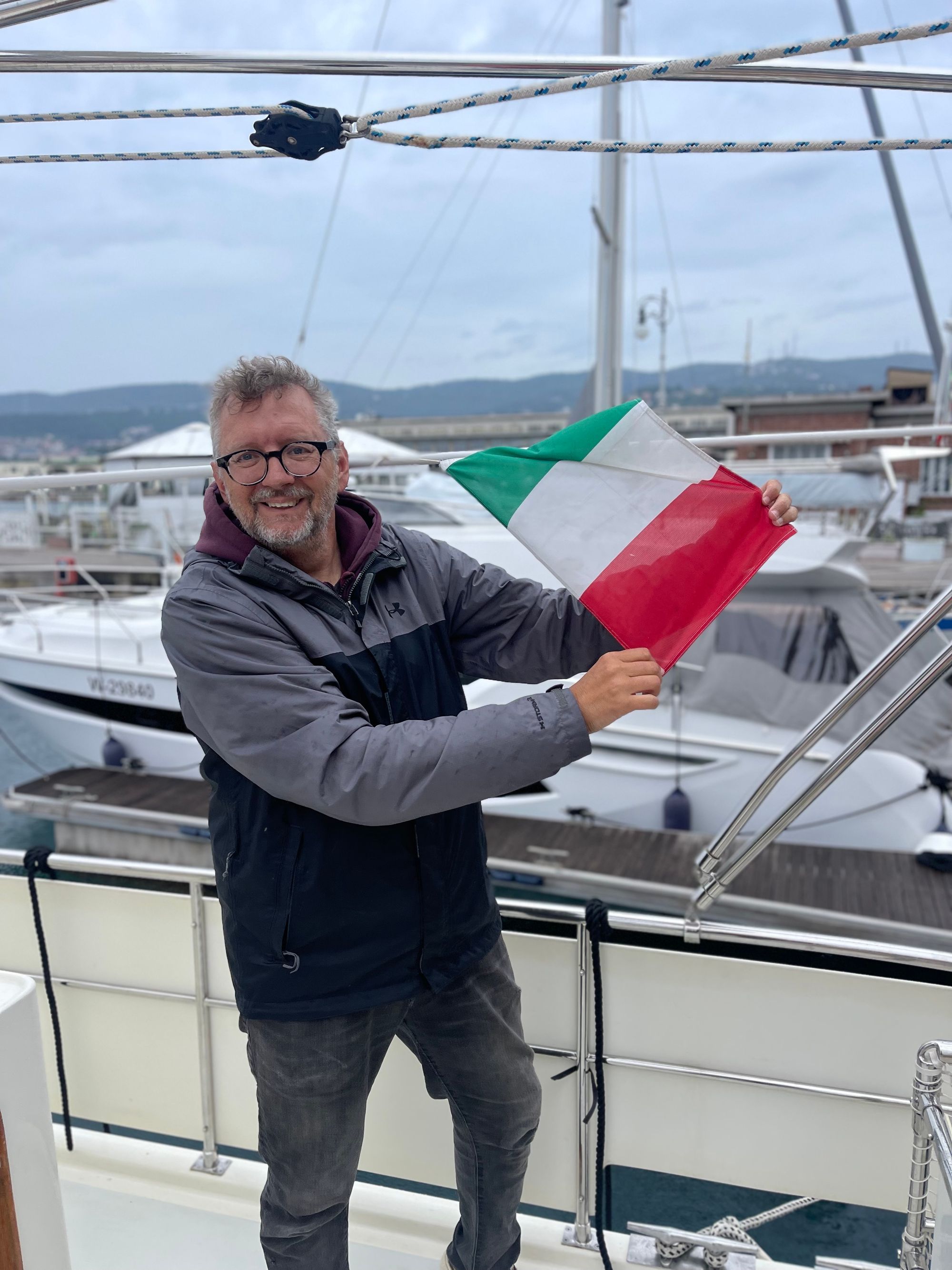
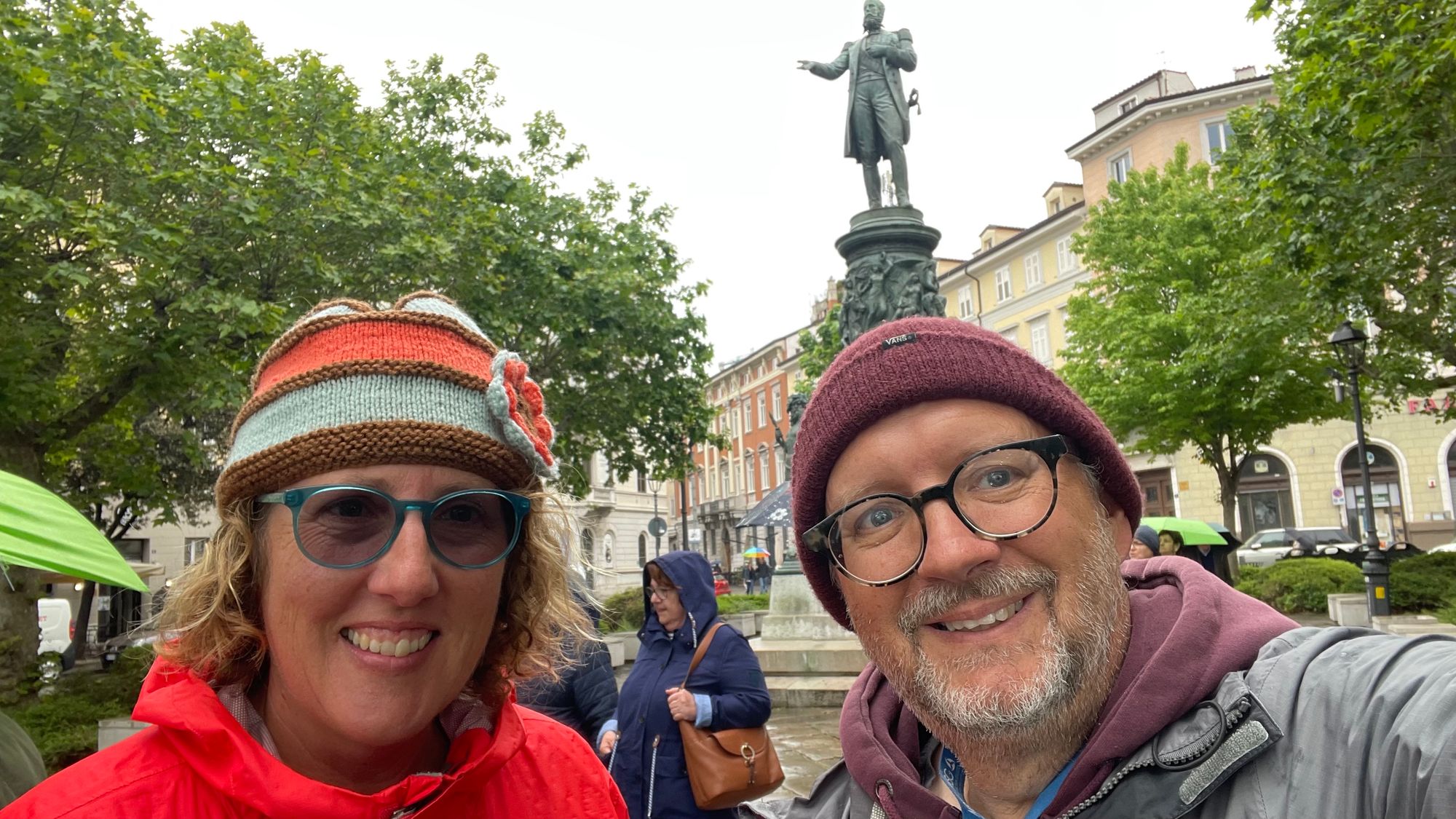
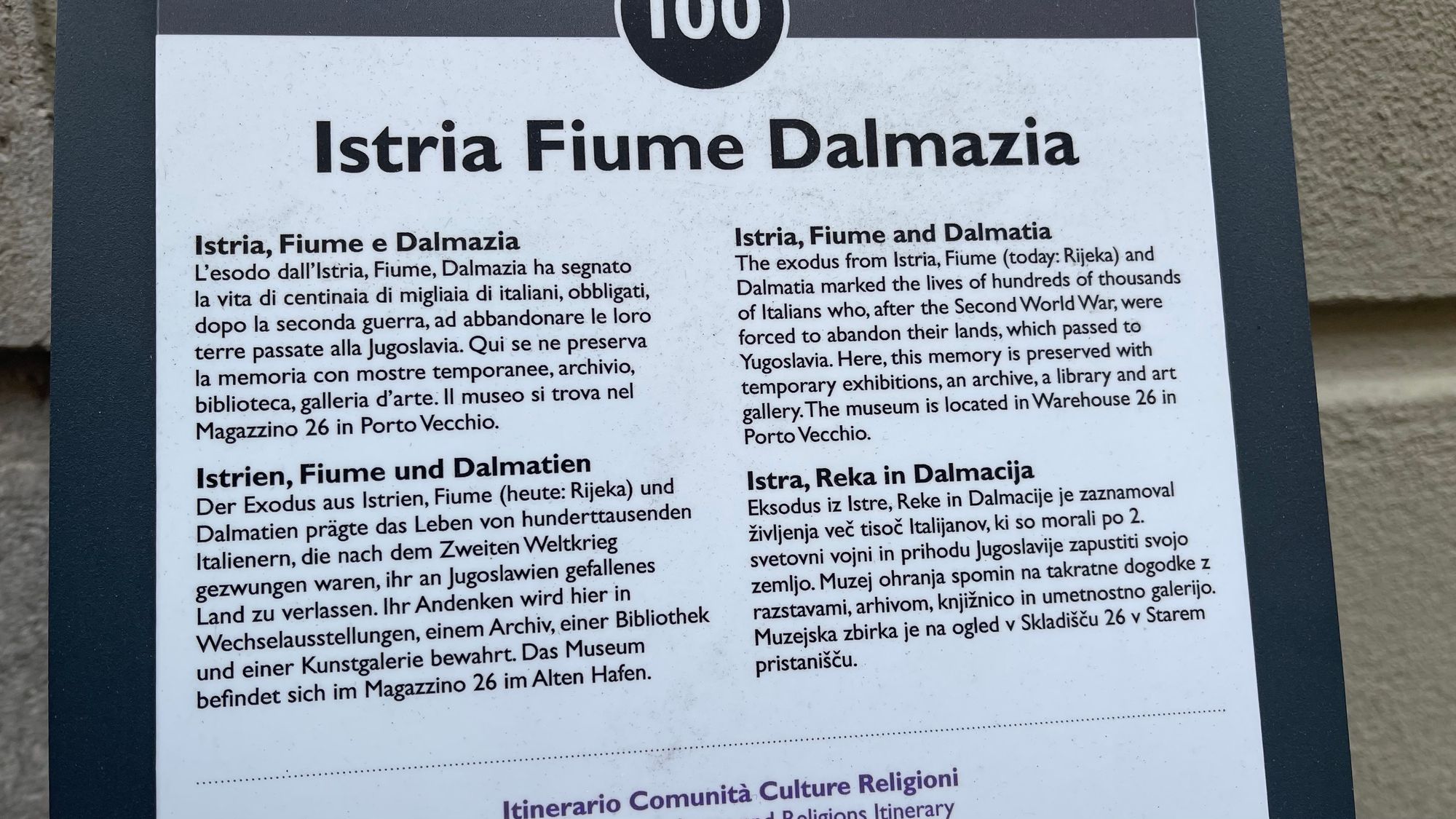
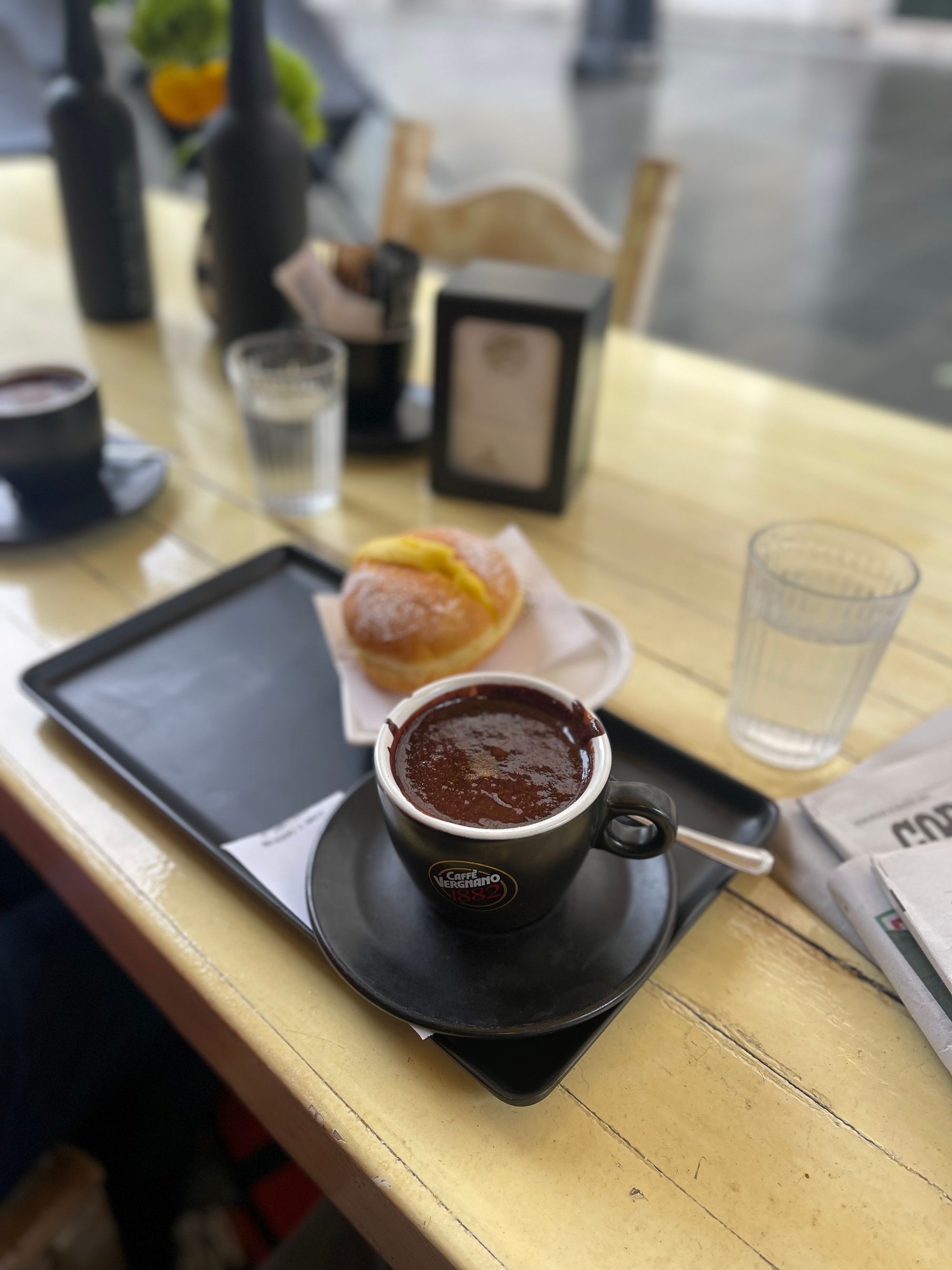
Trieste was a delight. I think we love Italy. There's just something magical about it, for the first time in weeks we loved every moment of exploring a new city. Our eyes open with wonder at the grandeur of the architecture, the cafes, the food. Overall, it was lovely, despite the wind and the rain. We just rugged up and went with it.
I also think that for the first time with Matilda we now feel like we're somewhere really different. There's a definite Balkans vibe and Greece has it too. The geography is somewhat similar and while the culture is different, it has familiar roots. The difference between Rakjia and Raki is mostly spelling. Or souvlaki vs grilled pork. We love it and we are excited to head back to Greece, but we're thrilled to be here in Italy.
We really are the ultimate in slow travellers! It's taken over 12 months from our first plan "Let's go to Venice" to now be within striking distance of making that happen.
We loved the architecture in Trieste, its history as part of the "Free State of Trieste", its time in the Austro-Hungarian empire and Hapsburg monarchy, its rivalry with Venice. All of it. I even learnt a new word. "Irredentist" - not a dentist who uses radiation, but meaning someone who wants to rejoin a nation they were previously part of.
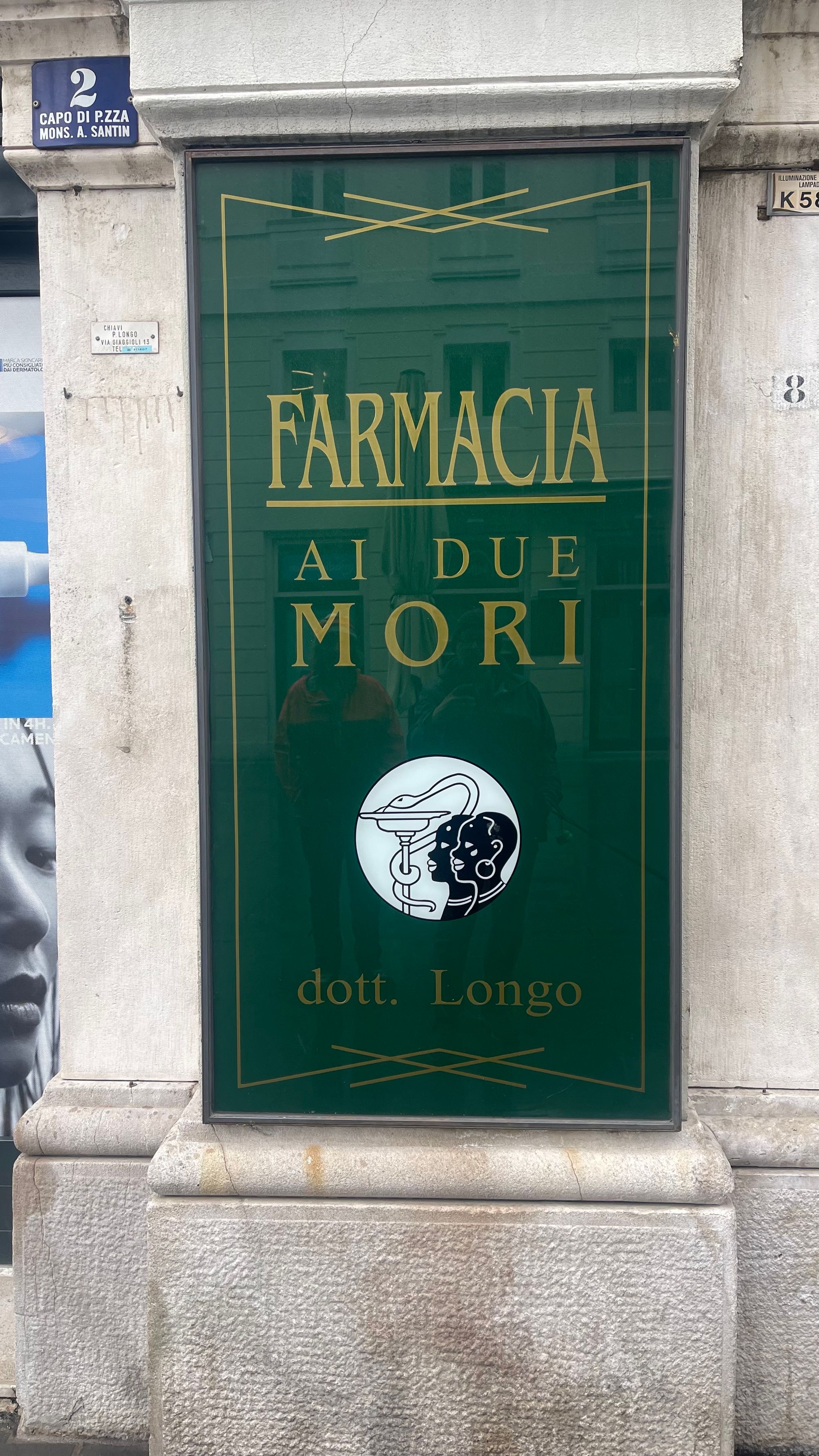
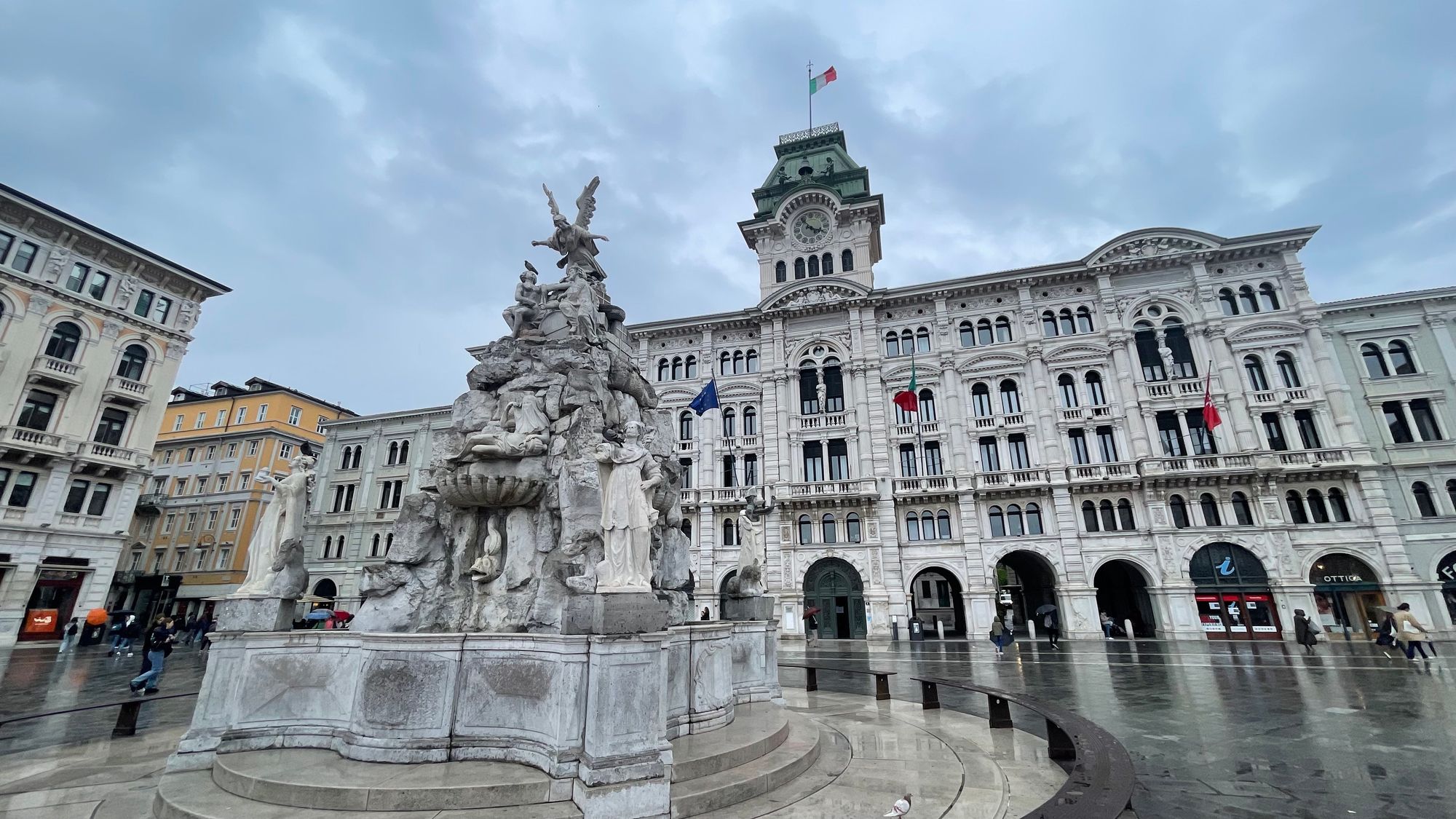
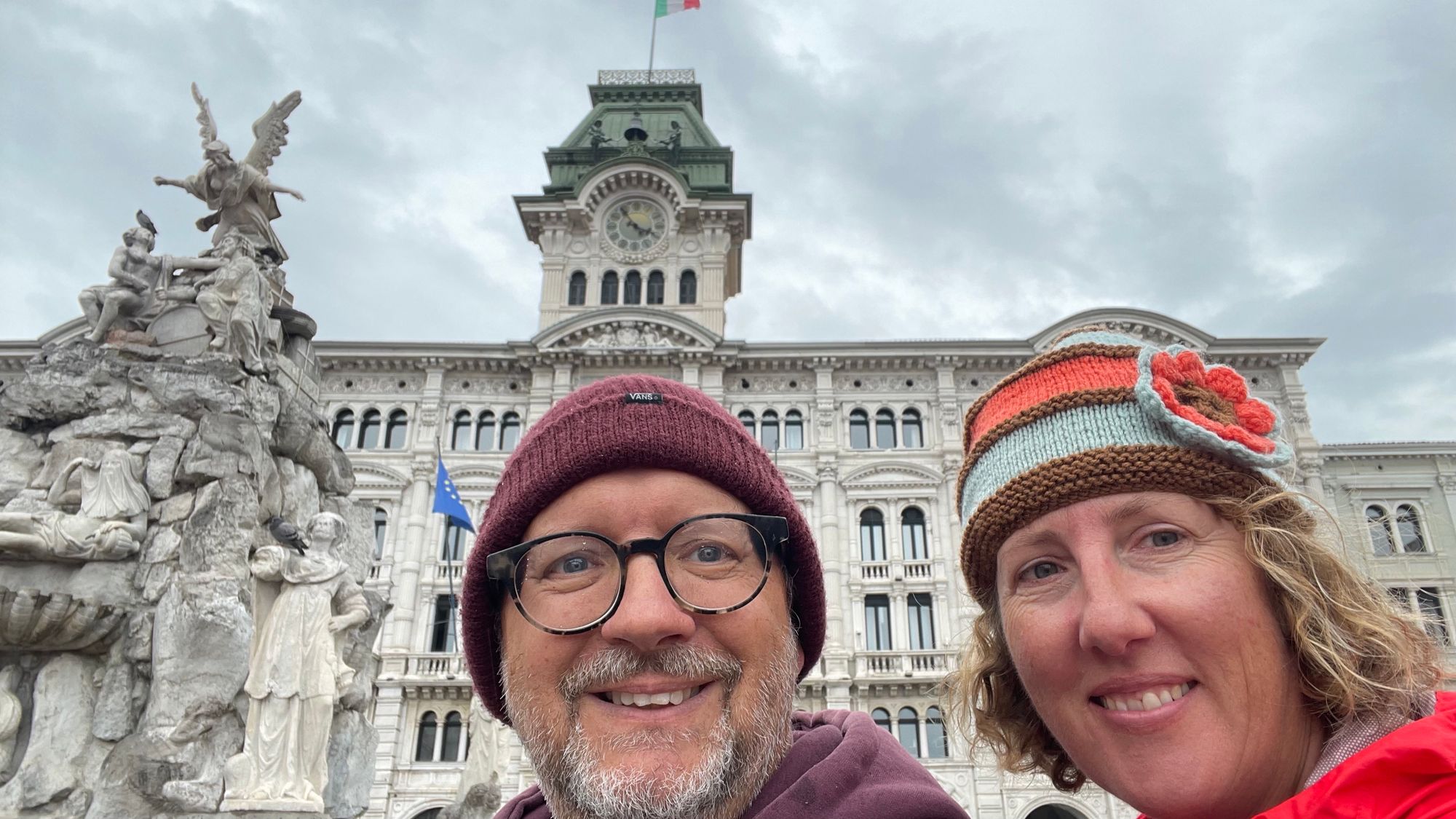
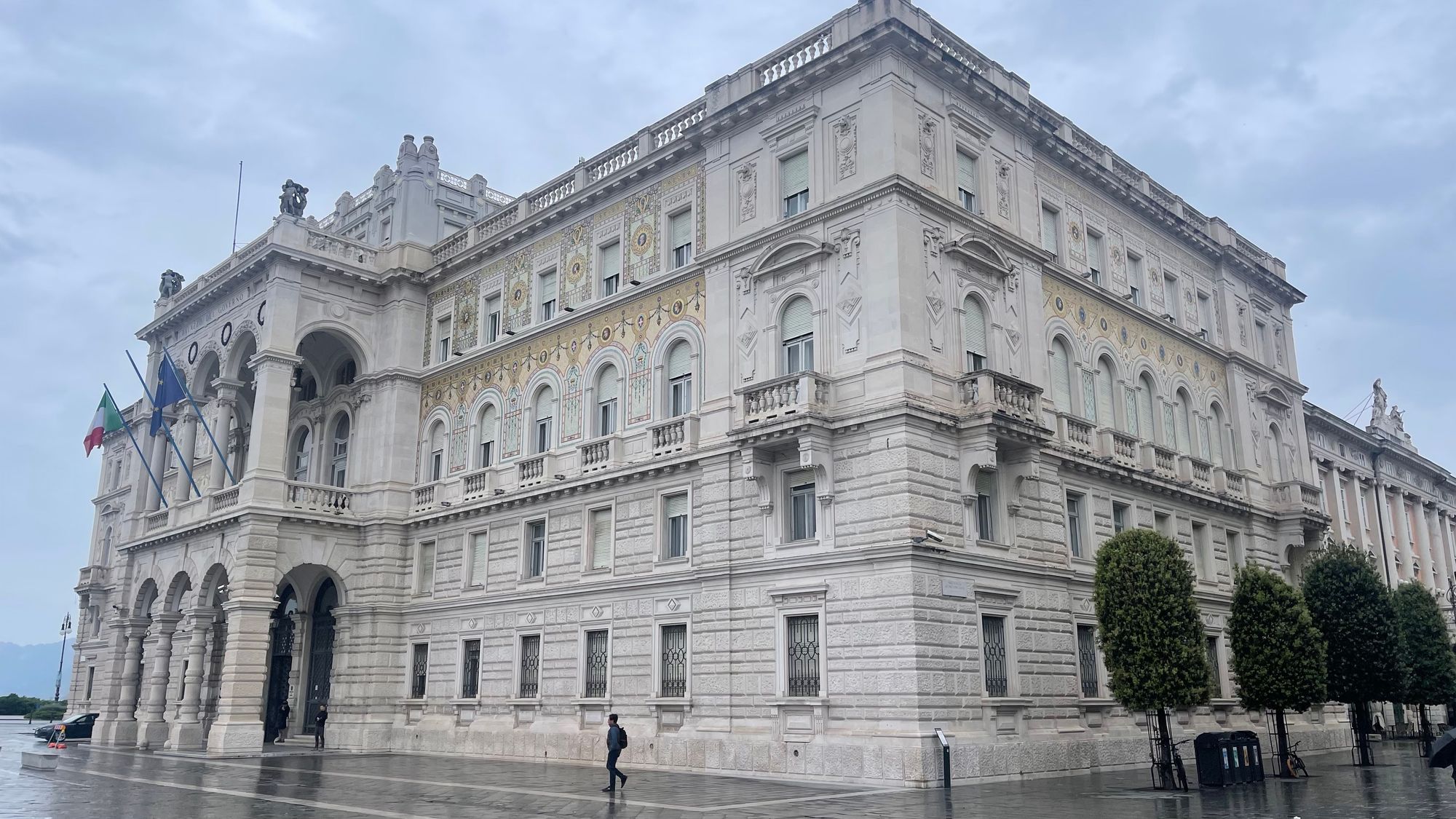
In the case of Trieste, that meant Italy. The irredentists and their activity were centered around the Cafe Tommaseo in Trieste and they wanted to be part of the Italian state that was coalescing out of the various Italian kingdoms. They even tried to assassinate the emperor Franz Joseph I in 1882. Amongst other things, Franz Joseph was the uncle to Franz Ferdinand who was assassinated in Sarajevo in 1914, starting World War I. Those Hapsburgs may have been powerful, but they weren't always popular with the people they ruled.
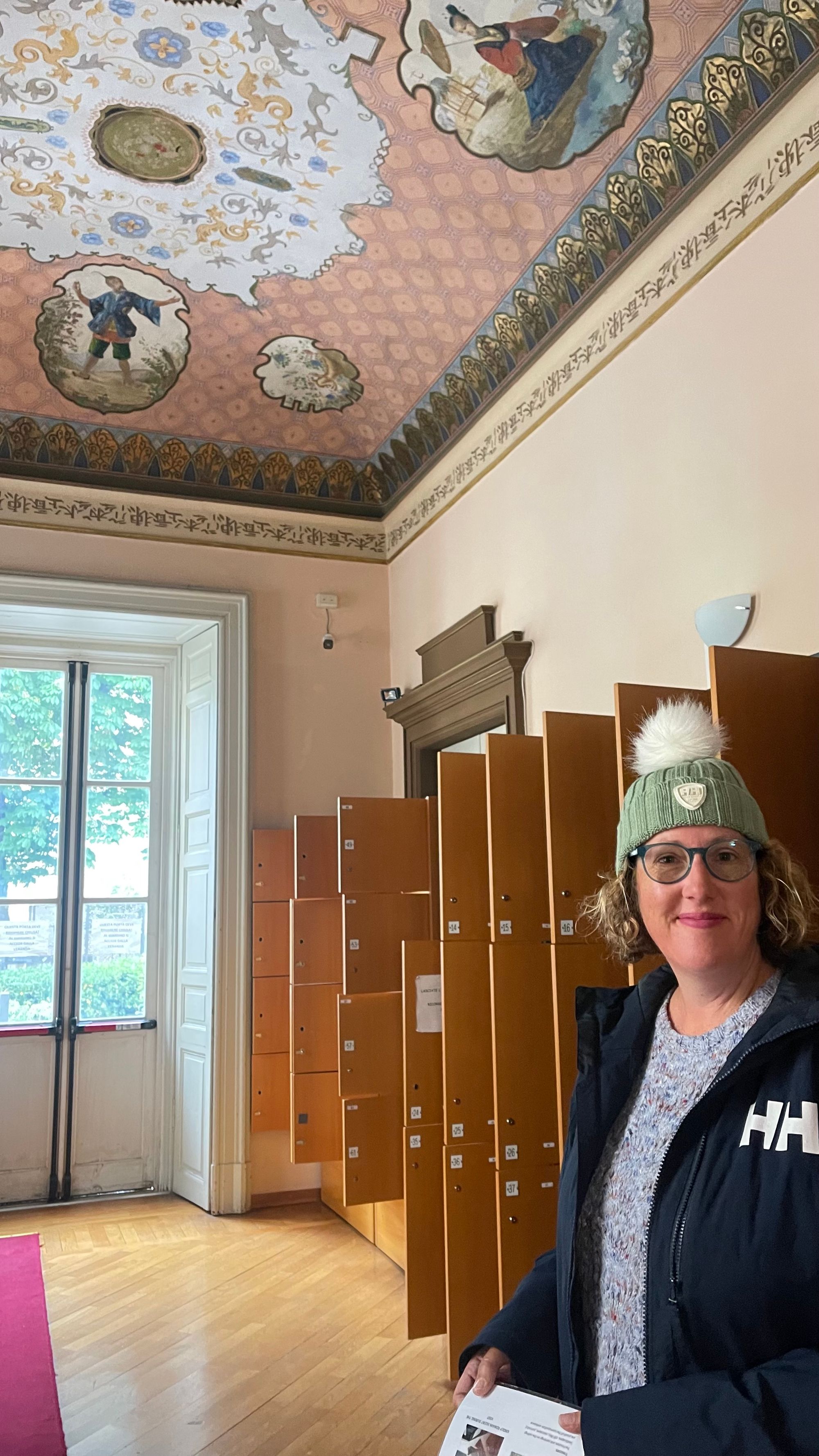
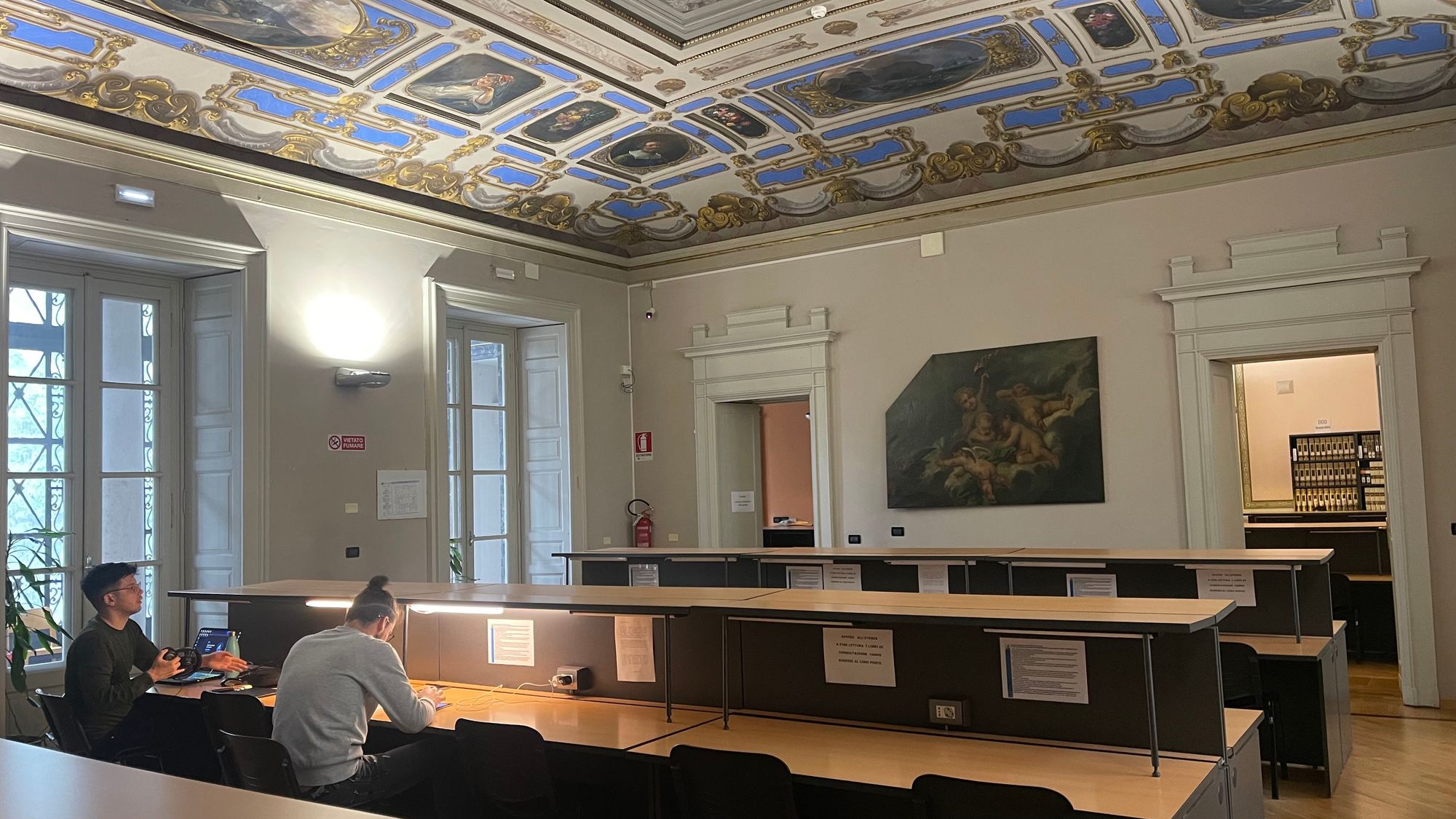
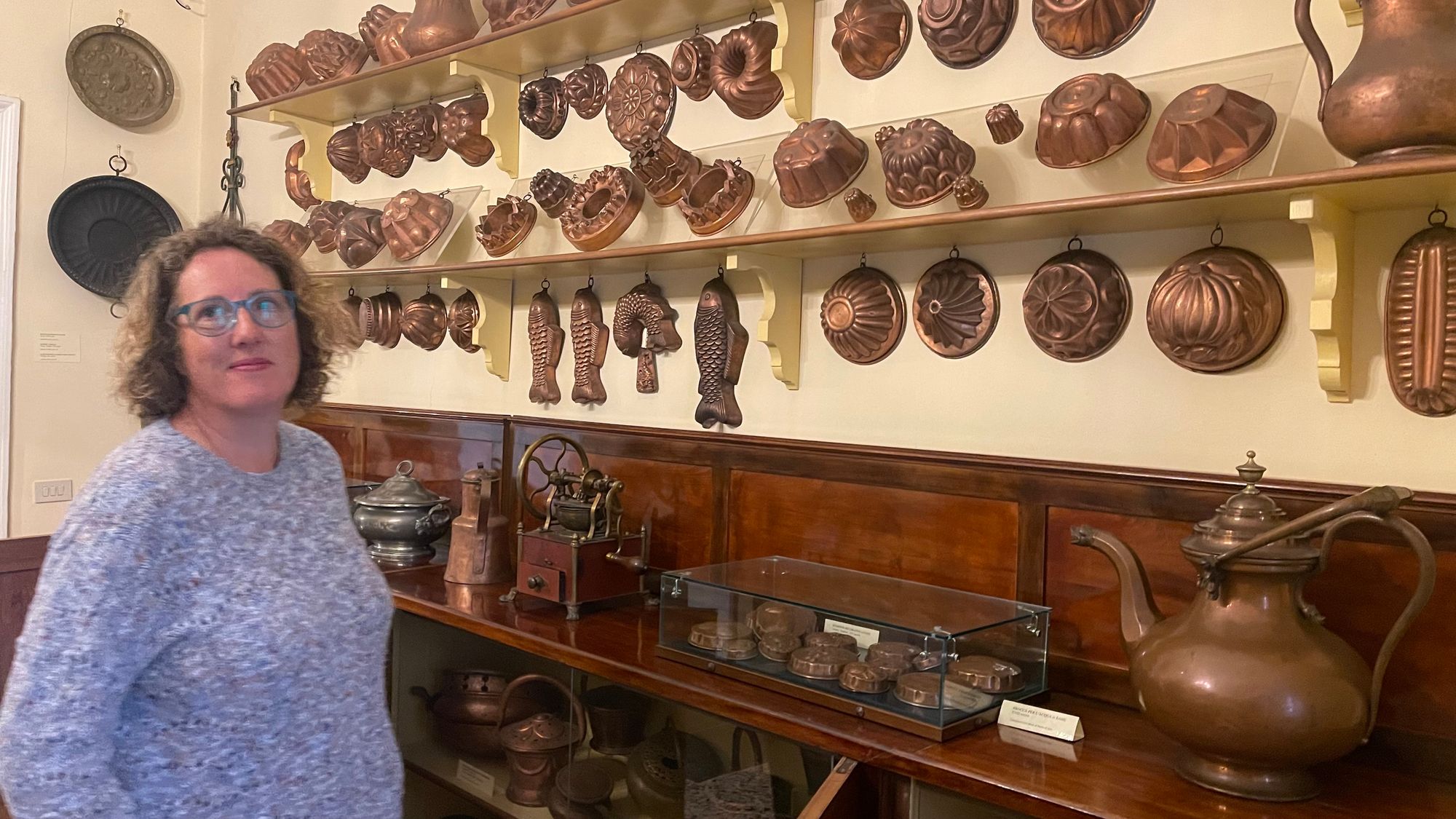
It feels strange that there's been no check in process here in Italy. I guess Schengen does mean something. As an EU flagged boat we don't need a "Constituto" and we legally entered the Schengen zone in Croatia, so we just travel around and do our own thing, hoping no one bothers us!
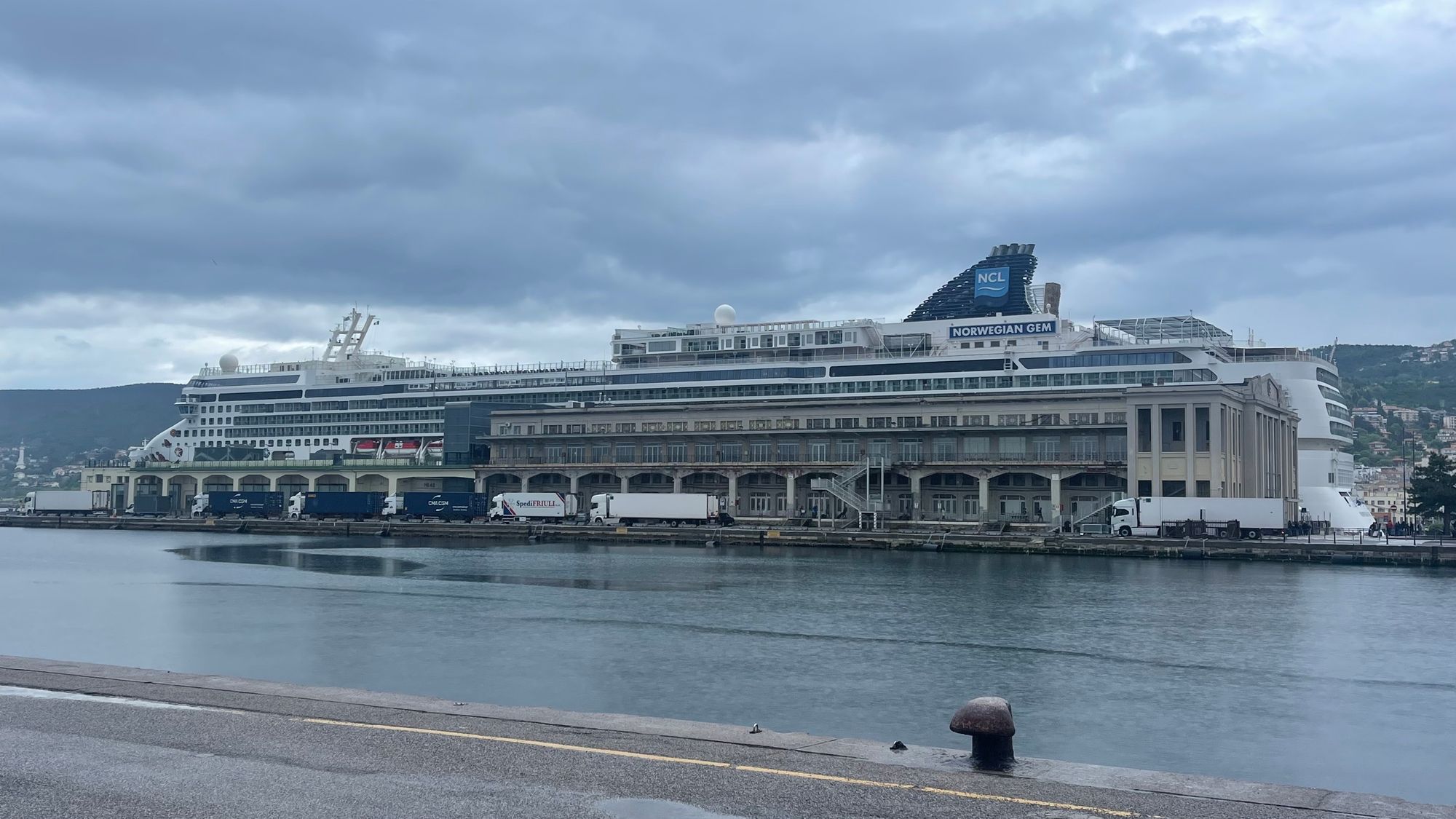
The weather is generally not that pleasant at the moment, a day or two of strong winds followed by rain, followed by a day or two of strong winds. Dodging thunderstorms and working our way to Venice.
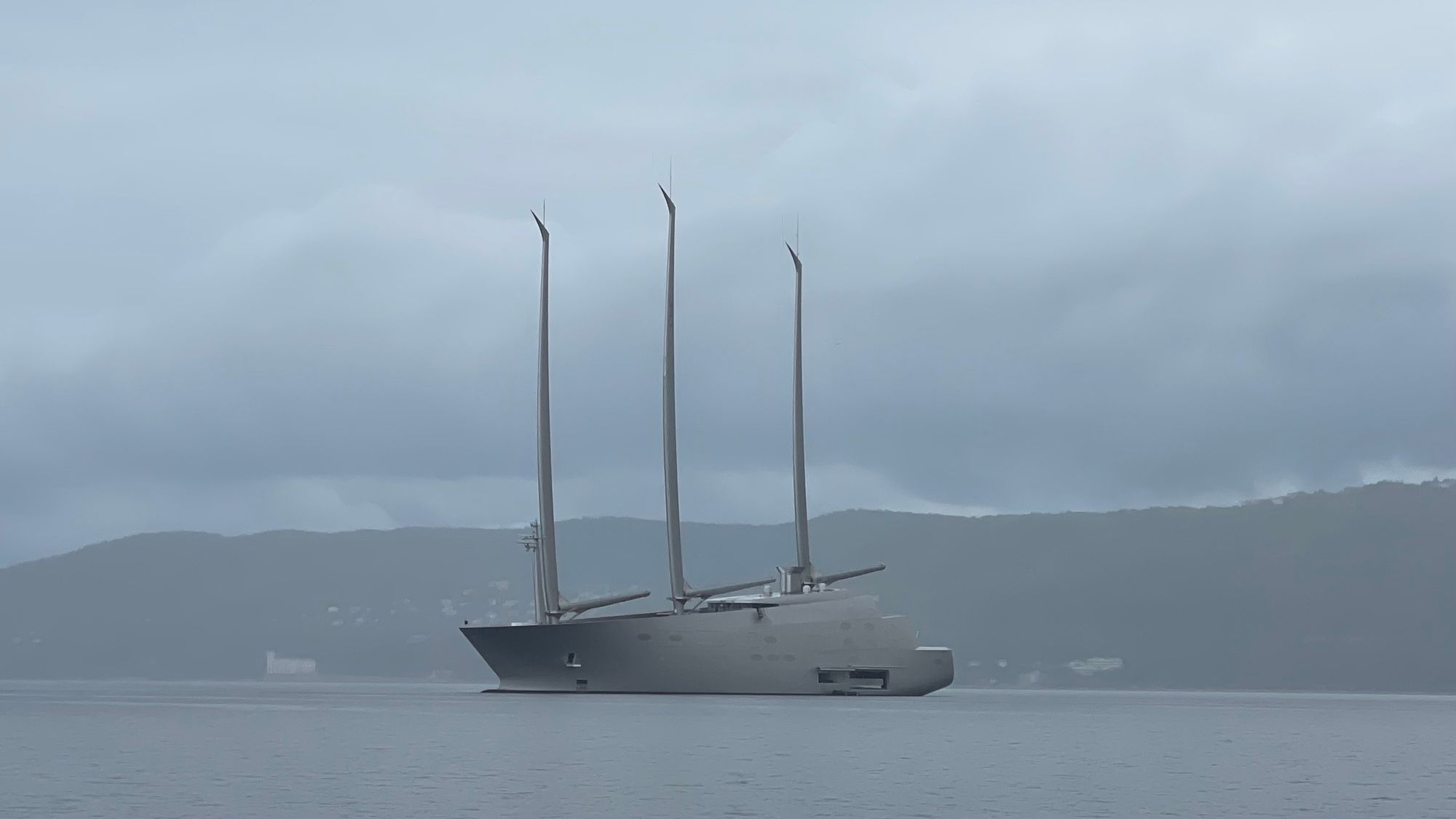
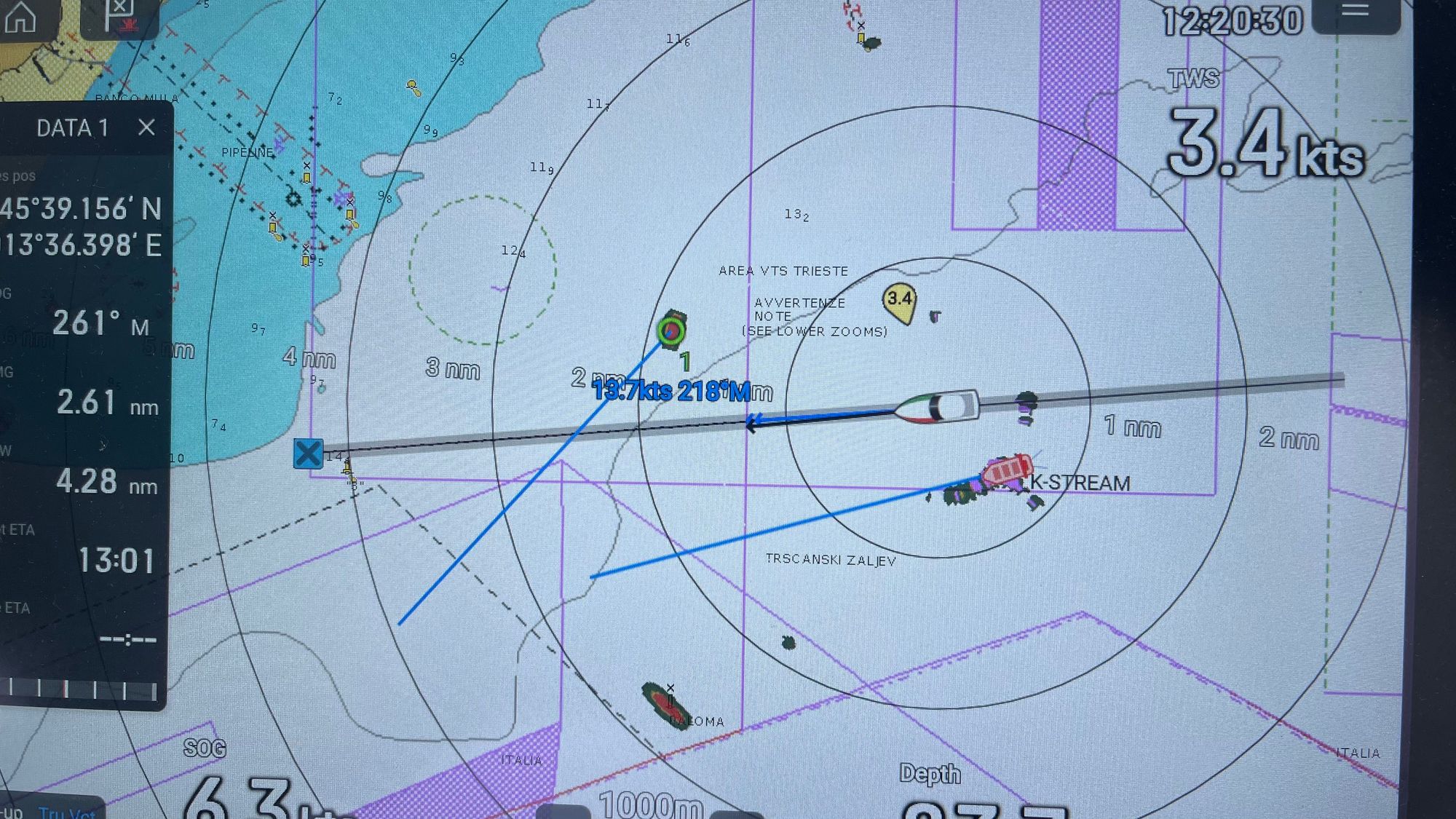
With Trieste done and the weather improving, we hopped over to the other side of the gulf and into the Marano Lagoon next to Grado.
Wow! Now we are really somewhere different. Around Greece, you only need to go 10 meters or so away from shore and you can have 50 meters of water beneath the keel. Here we were 5 miles off the coast and the depth was less than 20. Within 2 miles, it was under 8 meters. The big hills that line the coast have disappeared and everything feels new.
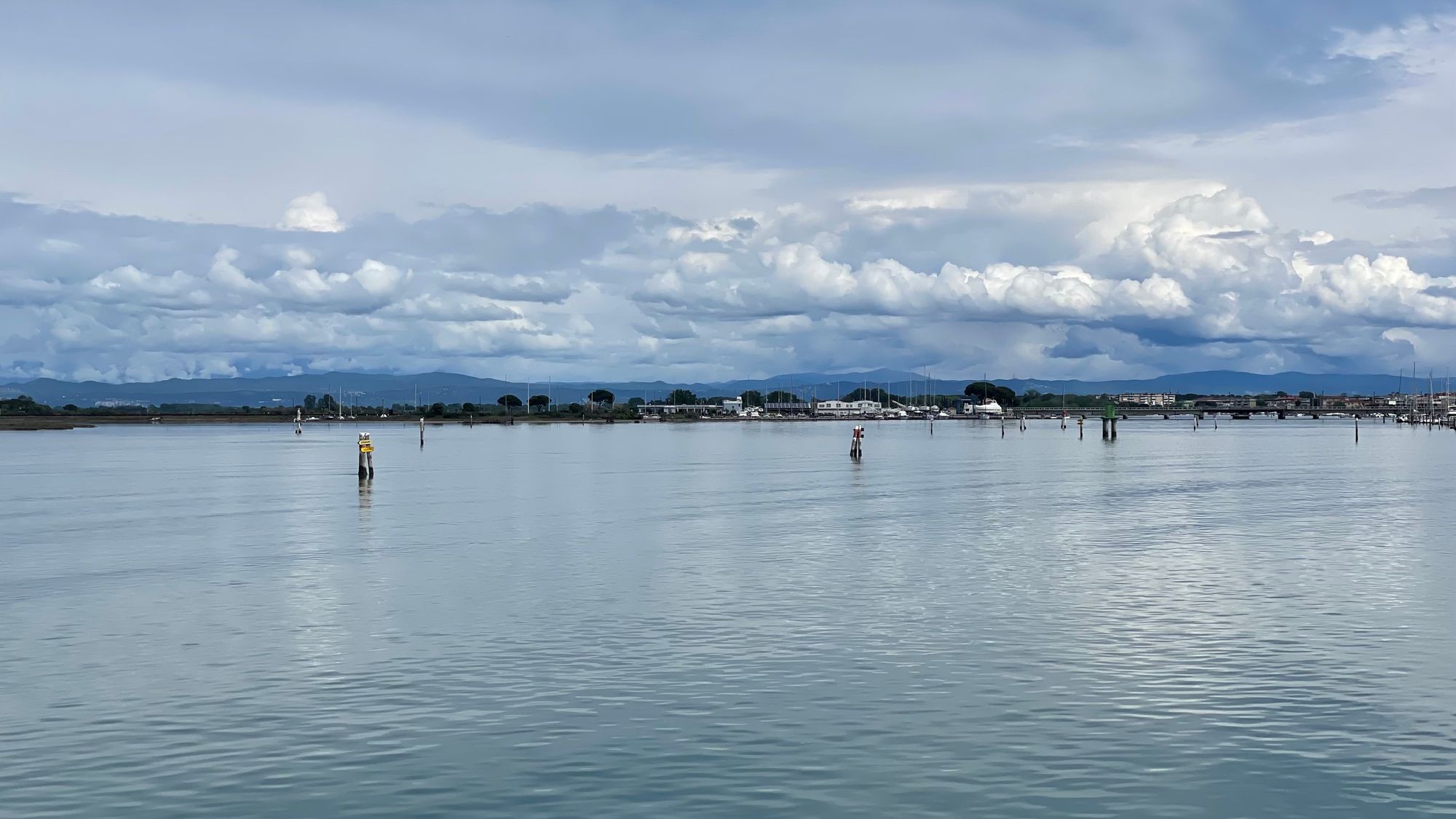
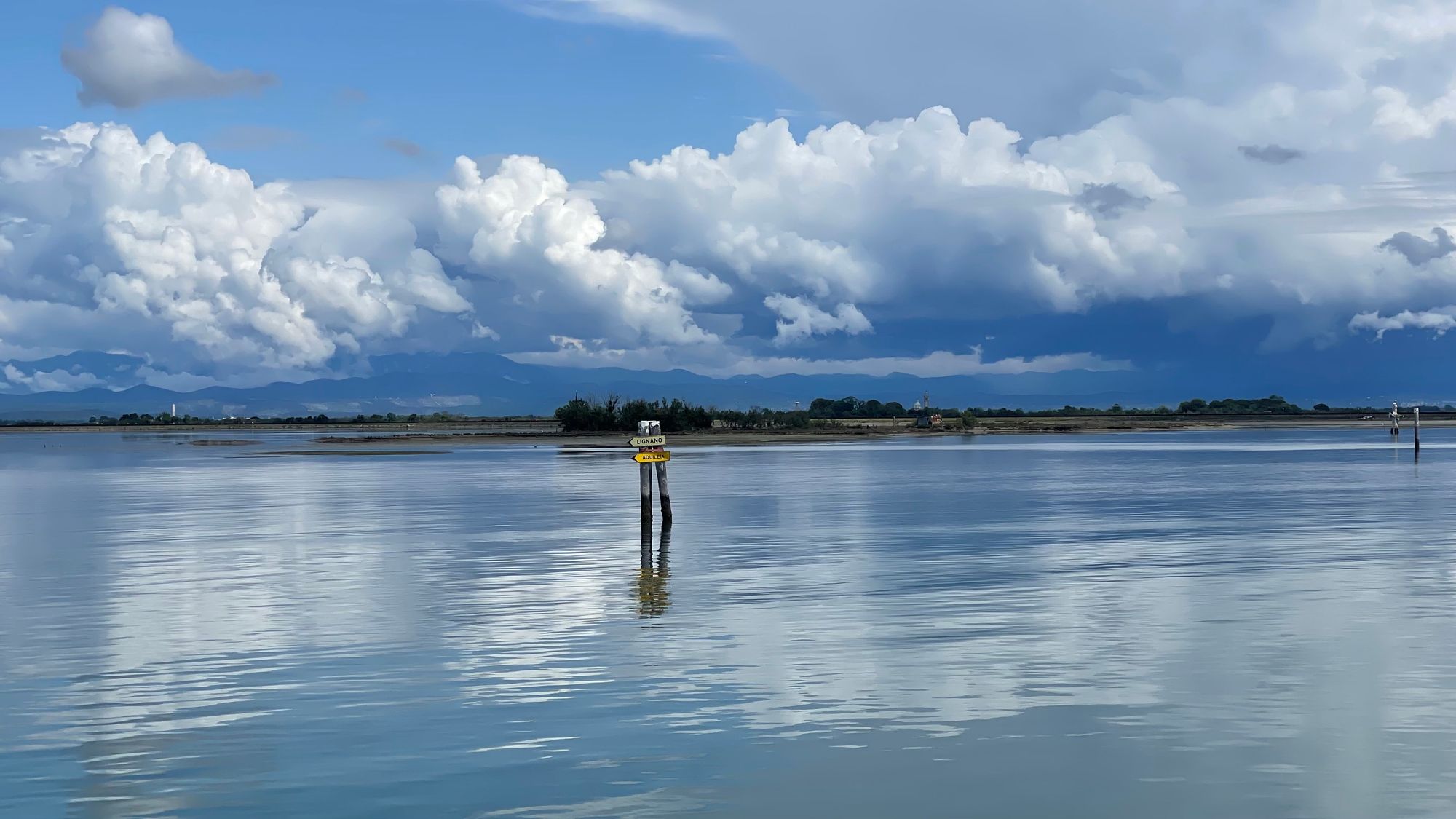
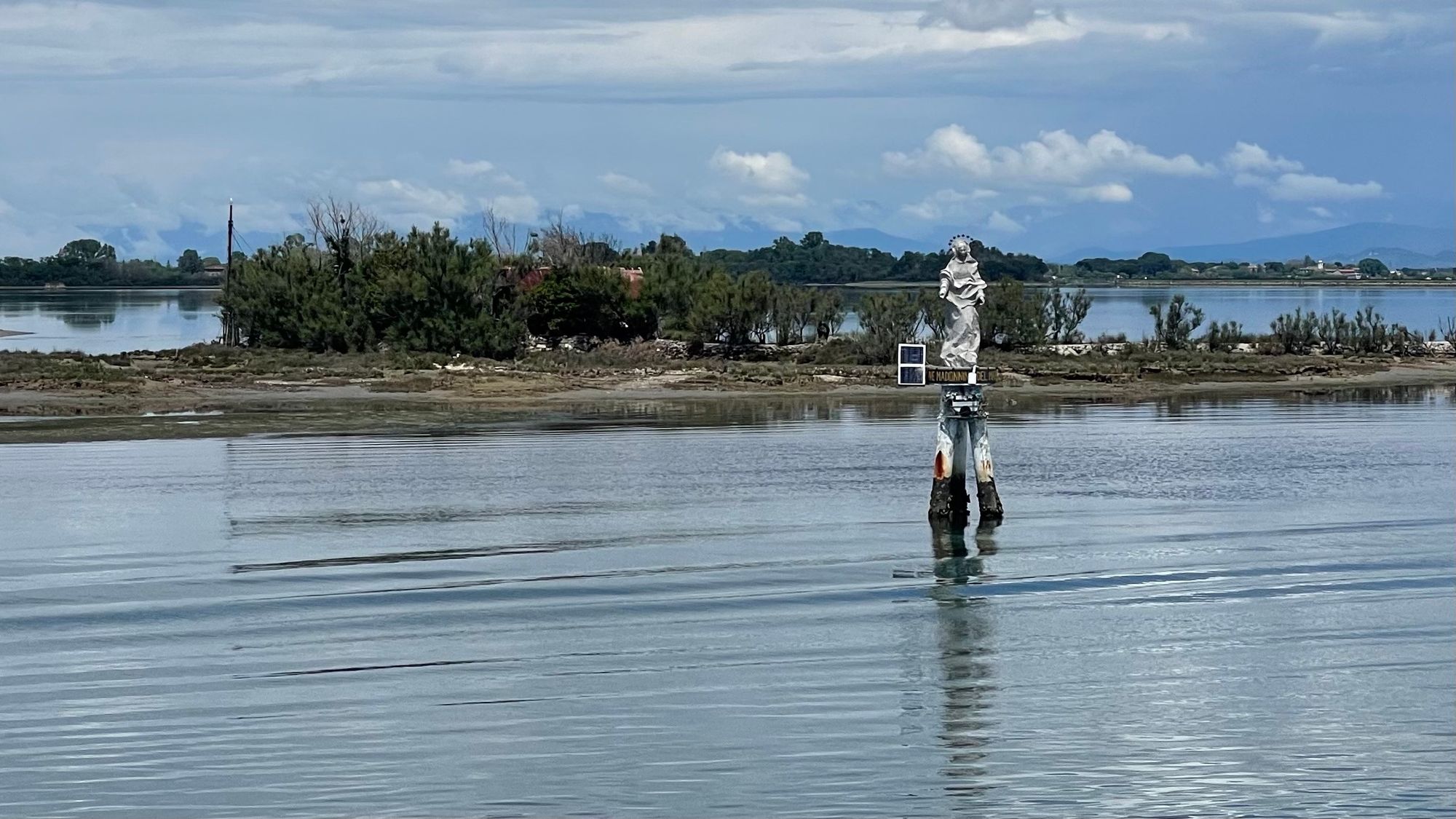
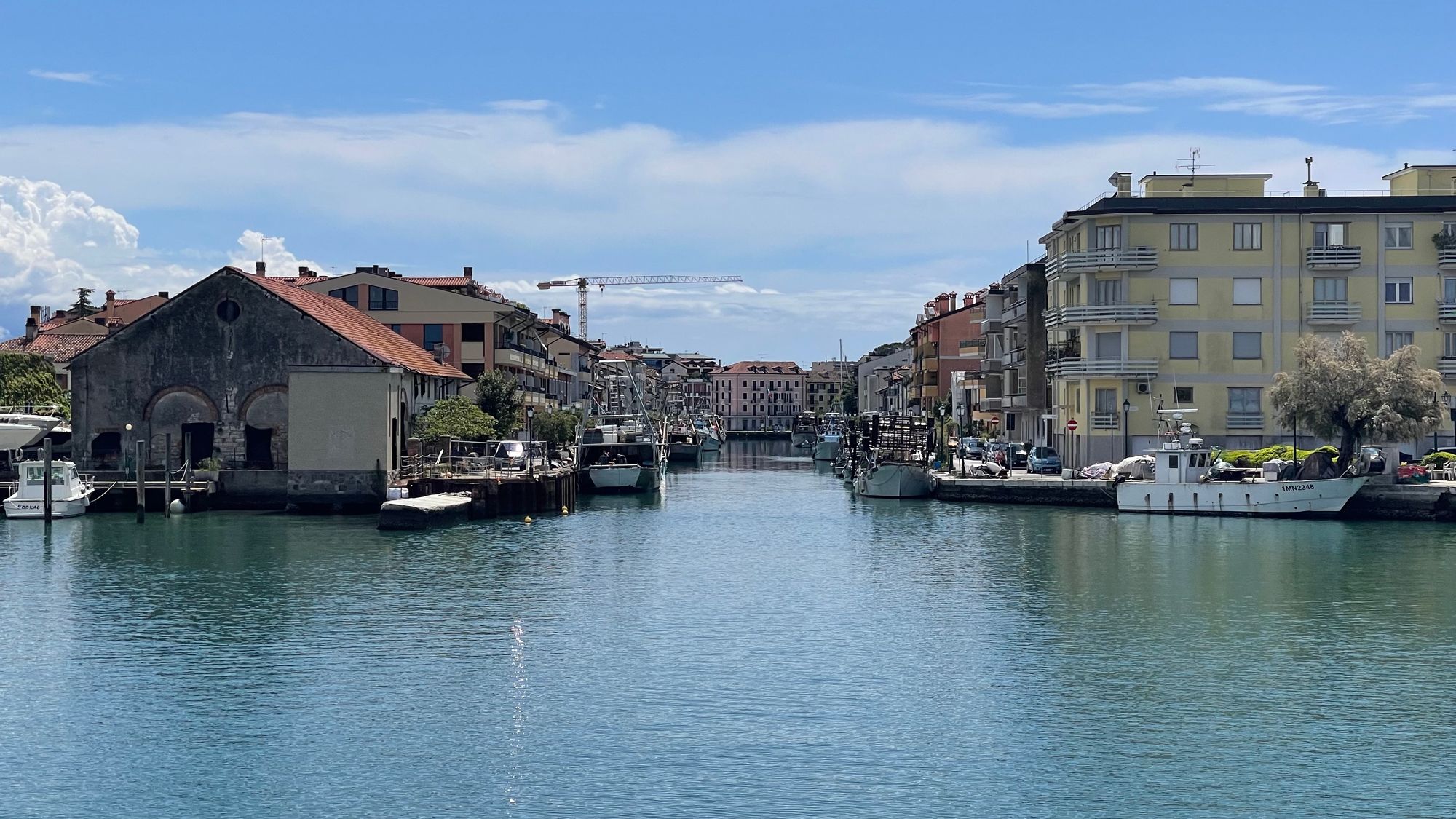
Another lesson this week was the power of currents. We've yet to experience them, they are essentially non existent in Greece (along with tides), but here we're starting to see half metre to 1 metre tides and with it, currents as the tides ebb and flow. Anchoring in a channel inside the lagoon, the current runs 3knots or more, which is weird because the boat points into the current, so now we have the wind and waves slapping on the side of the boat instead of over the bow.
We took the opportunity to do some boat jobs. It's not all travel and glamour, I cleaned the shower sump and replaced a joker valve in the guest head - two disgusting jobs, while Karina cleaned the boat thoroughly inside and repaired a step which had come loose.
Today we're waiting out the weather. It's seeming likely that we're stuck aboard all day, but tomorrow it's a long haul of 40 miles to Venice where we have a marina booked a day earlier than planned to avoid more wind and we're spending a good 10 days or so there with Ella and Inge arriving on Friday.
Until next time,
Tim & Karina
Enjoying these posts? You're welcome to Buy us a coffee. Now we've finally made Italy, I expect to drink even more!
